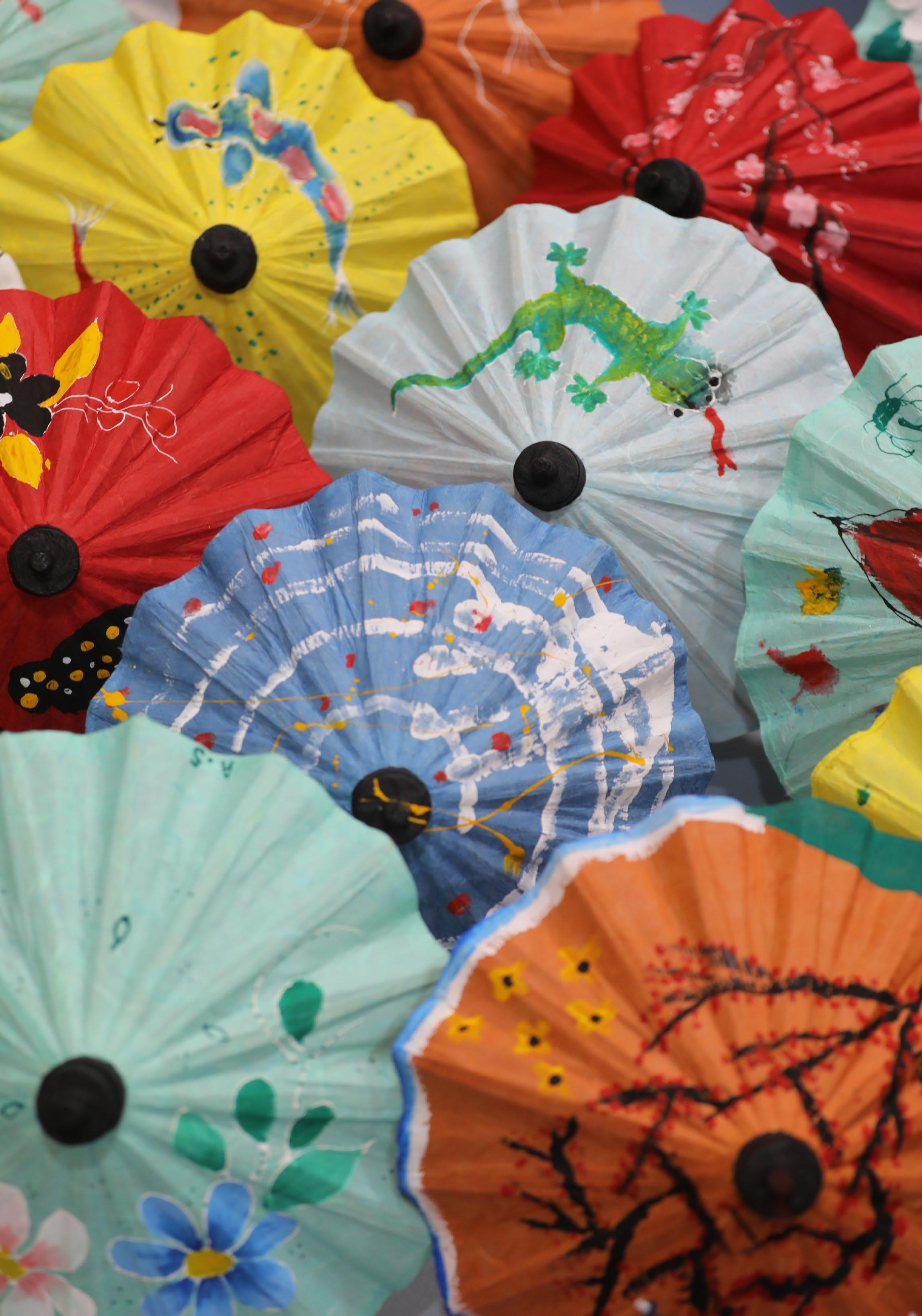



The Termly Magazine of Bangkok Patana School Bangkok Patana Bangkok Patana is a not-for-profit IB World School accredited by CIS Magazine Issue 69 Term 2, March 2023 WELL-BEING Secondary Residential Visits GLOBAL CITIZENSHIP Supporting Home Languages LEARNING Brain Boosters (2)




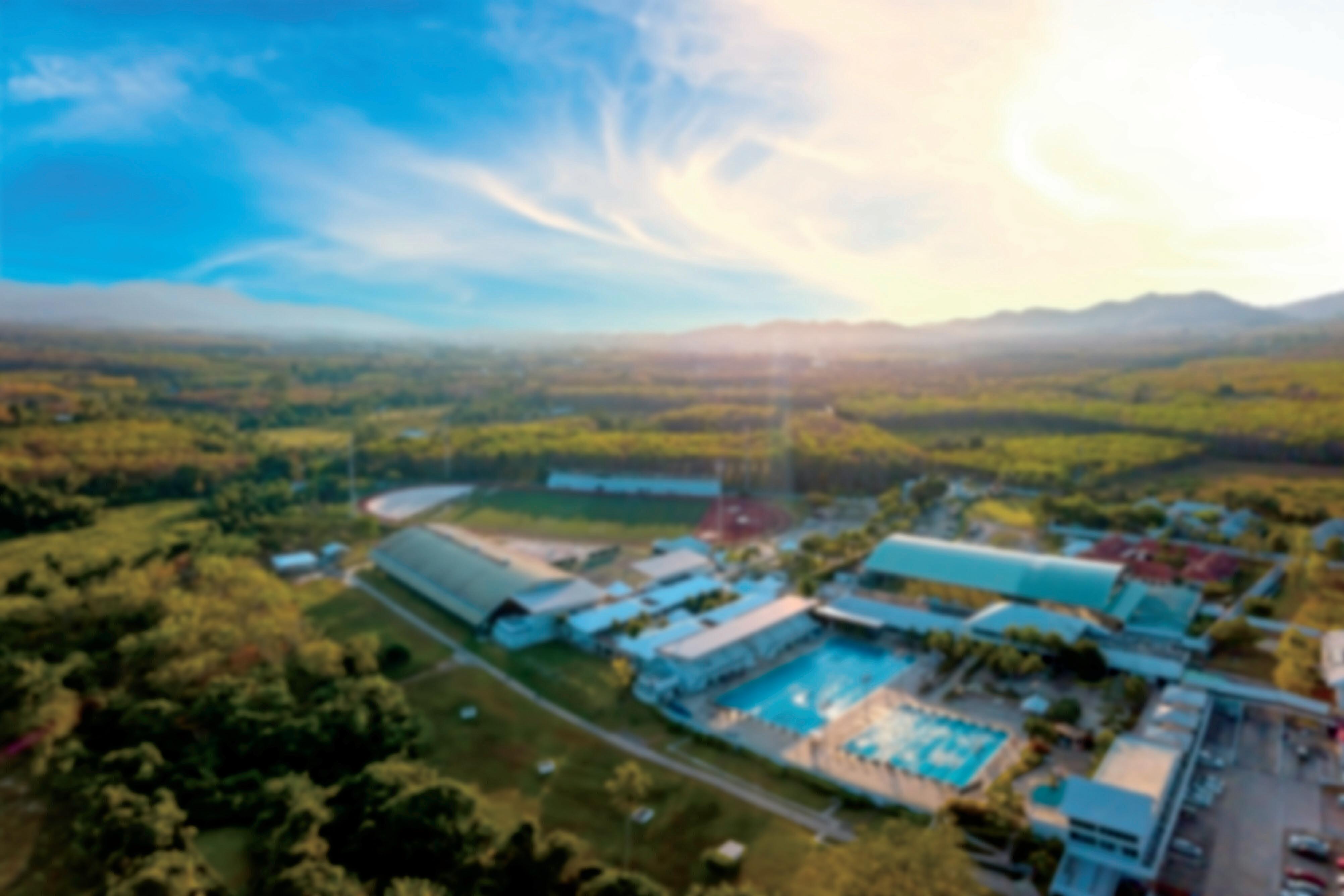
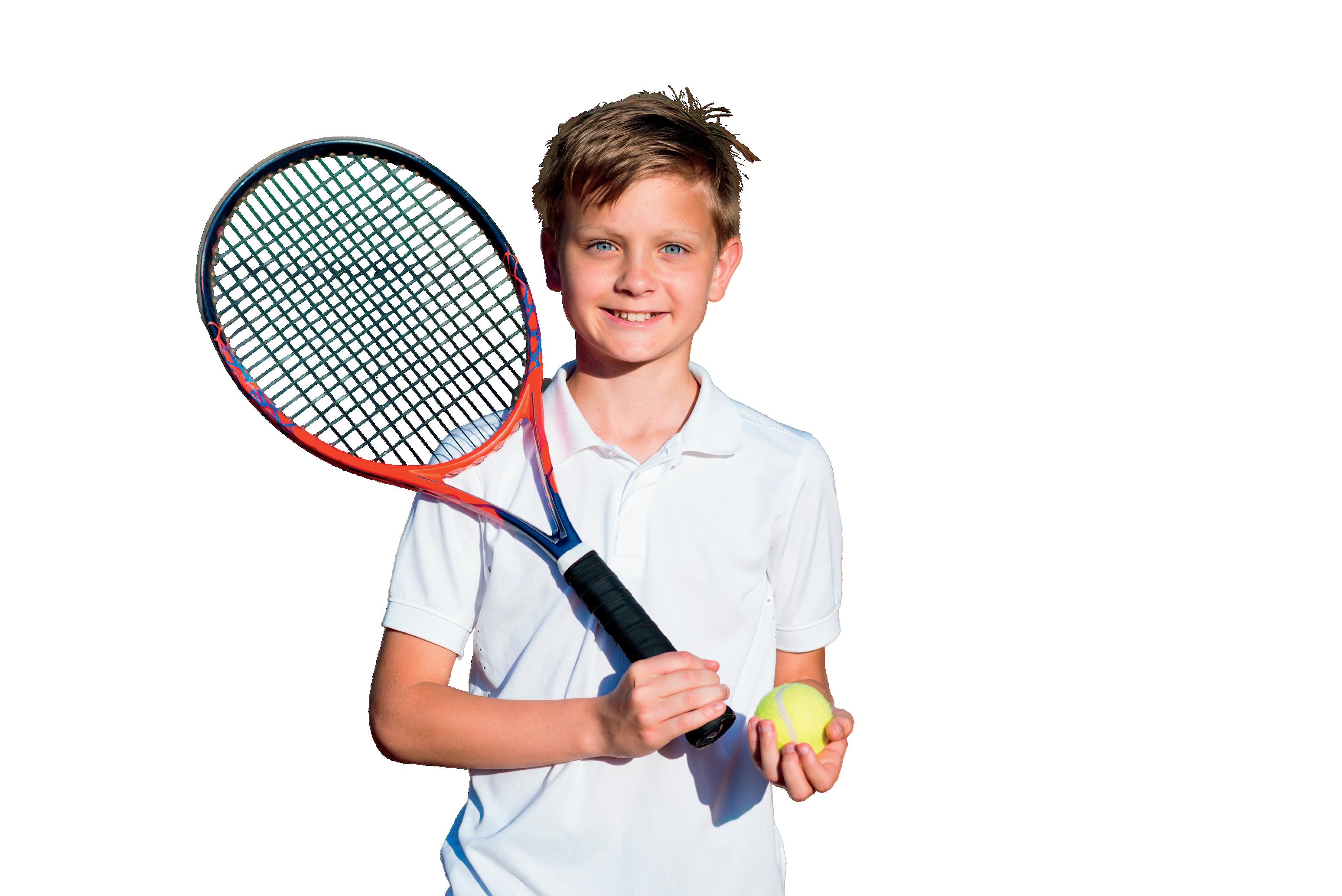







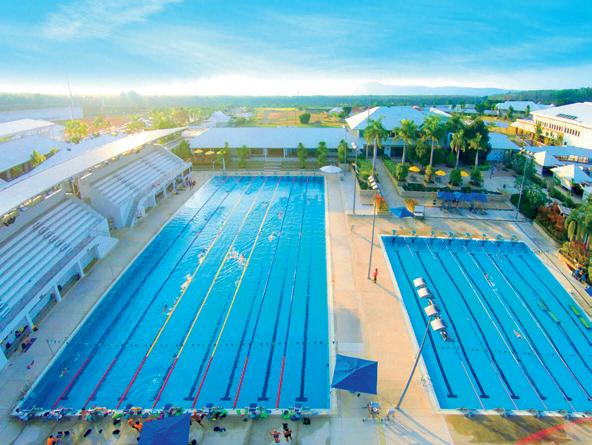



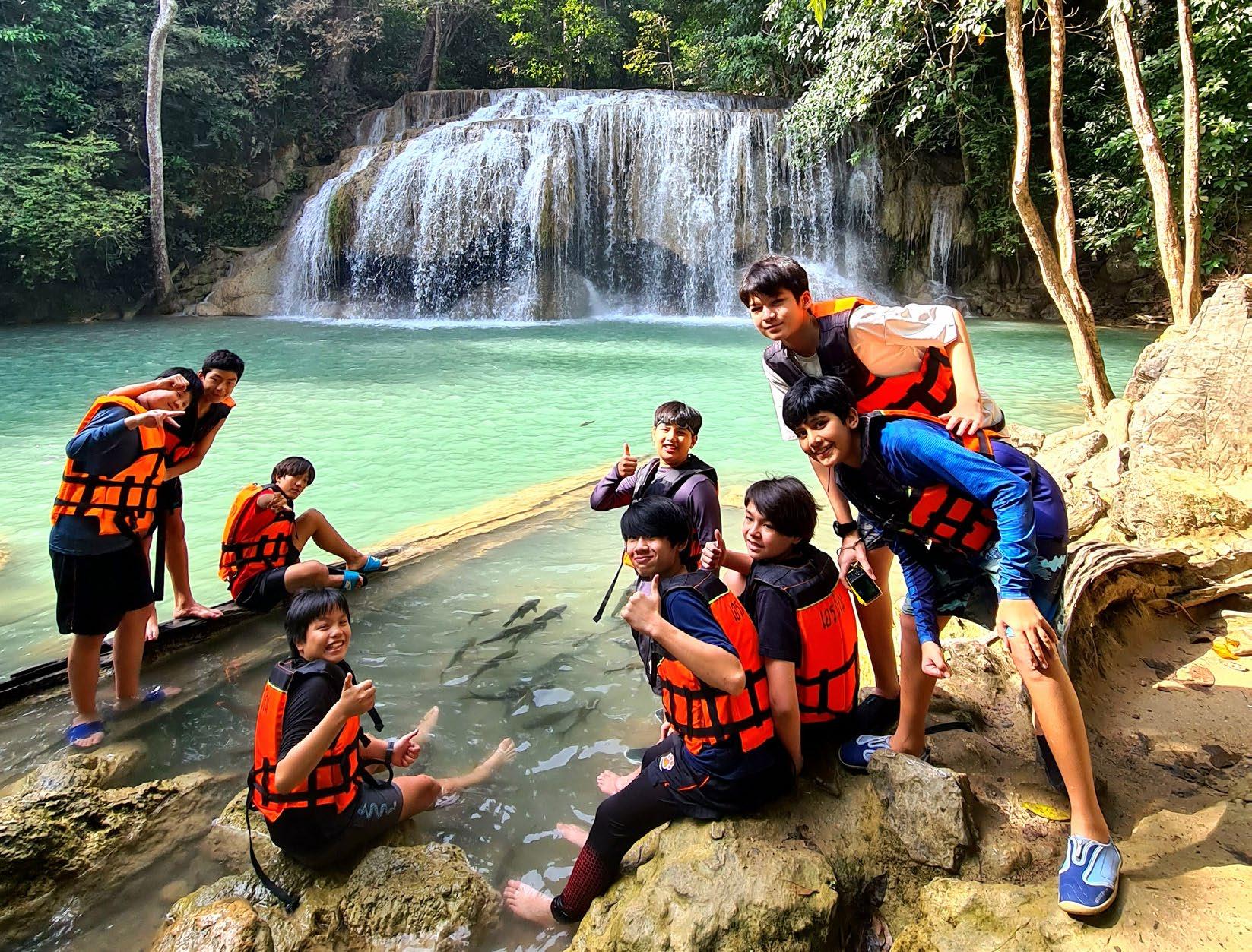






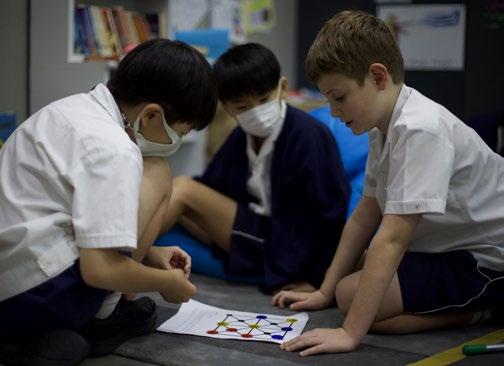
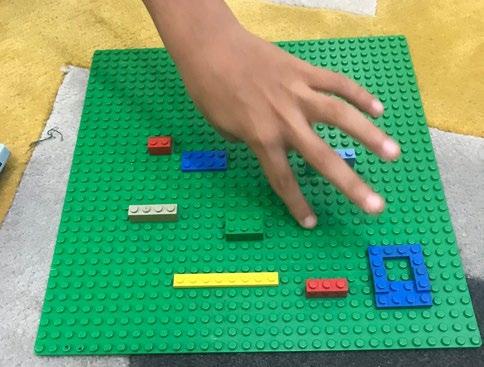


4 • Bangkok Patana School LEARNING CONTENTS Issue 69, Term 2, March 2023 Front Cover: Painted Umbrellas, Year 9 Residential Visit • 6 Foreword WELL-BEING Residential Visits 8 A Fantastic Week for All! 10 Participation and Positivity 12 Water Rafting and Umbrella Crafting 14 A Memorable Experience 16 Let’s Tok About It LEARNING 18 Brain Boosters (2) 30 Where We’re From GLOBAL CITIZENSHIP 20 What kind of Global Citizens are our Students? 24 Supporting Home Languages 26 Alumni Stories: Holly Dejsupa, Grad‘16 28 Alumni Stories: Helena Martin, Grad‘15
GlobalHealth Asia –Pacific Awards 2022
• Hospital of the Year in Thailand 2022

• Colorectal Cancer Service Provider of the Year in Asia Pacific



Women’s Empowerment Principles (WEPs) Awards 2022












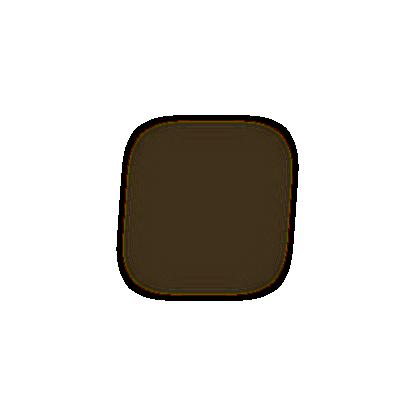
Healthcare Asia Awards 2022
• COVID Management Initiative of the Year


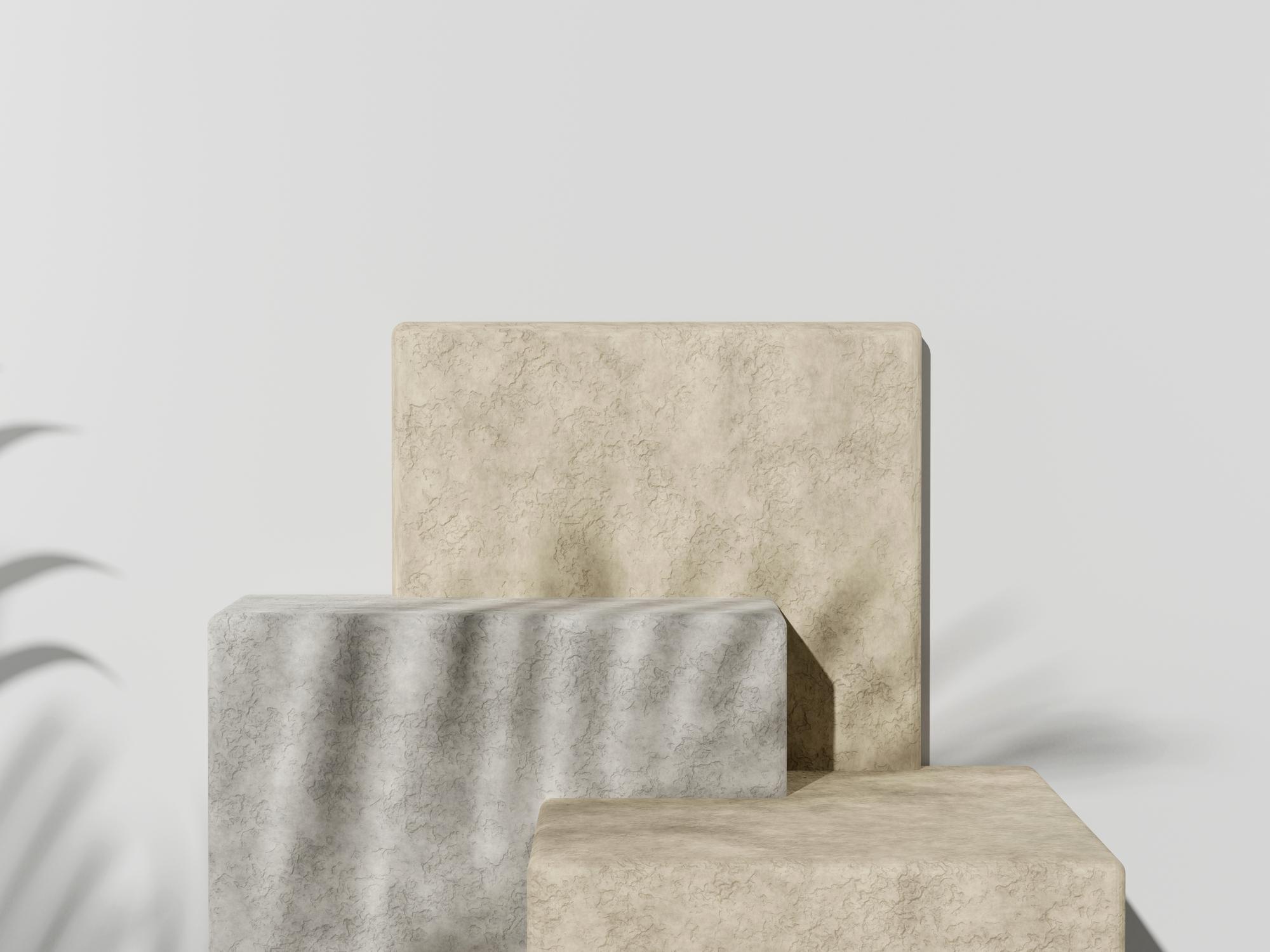
Geriatric Emergency Department Accreditation 2022

Hospital Management Asia Awards 2022
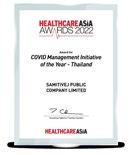
FOREWORD
By Kazuma Uji and Kamolnisa (Gao) Kamalanavin
“Where are we going for Resi this year?” has always been the question on our lips as soon as we return to school in August. Residentials gave us an exciting break from the norm and the chance to see what life was like outside of our safety net of the city. It was also way outside of our comfort zone. From feeling absolutely terrified while white-knuckling it down the rapids in Chiang Mai, to the eerie peace and quiet of camping under the stars in Khao Yai, it is safe to say that Residentials have never failed to sling us through a rollercoaster of emotions and unforgettable moments, many of which we still laugh about with our friends to this day.
Aside from the sometimes nail-biting outdoor adventures, Residentials were also a much appreciated opportunity to temporarily deviate from the traditional school curriculum. As we’ve become older, the importance of the world beyond the classroom is increasingly apparent. As we’ve become older, the importance of the world beyond the classroom is increasingly apparent. One trip that is particularly vivid was when we visited a small sustainable village to learn how they were minimizing waste by using home-made organic products in their daily lives. We actually got our hands dirty and helped to plant some trees. Residentials have really given us the space to open our hearts in order to connect with the world around us.

It is a given that Residentials will always have a special place in our hearts. With so many life-long memories packed into a five-day trip, it has become almost impossible to pick one Residential over another - they’re all firm favourites! Of course, there were times, such as the Duke of Edinburgh International Award (DofE) practice expedition, when the various hikes pushed us to our physical and emotional limits. However, even then, there was always an air of laughter and camaraderie that left an overwhelmingly positive impression on our Residential experience.
Aside from DofE, I think what we particularly enjoyed about Residentials was the perfect blend between recreational
and educational activities: one day, we would go on an exhilarating night safari in the chilling darkness of Khao Yai National Park or get absolutely soaked at a fun-packed water park. On another day, we would set foot on historical sites and museums in Kanchanaburi about WWII or help local, sustainable communities in Chiang Mai. Residentials were always filled with new lessons, new experiences and new challenges. The best part was that all our friends were right there too; we could learn, grow and laugh about our adventures together. Even though we were unable to attend our final Year 12 Residential due to the pandemic, I am certain that it would have been just as fun-packed, unpredictable and exciting as the rest.

643 Lasalle Road (Sukhumvit 105)
Bangna Tai, Bangna
Bangkok 10260 Thailand
Tel: +66 (0) 2785 2200
Email: reception@patana.ac.th
www.patana.ac.th
Editor: Stasha Malcolm
Tel: +66 (0) 2785 2411
Email: stml@patana.ac.th
Advertisement: Finn Balslev
Tel: 081-866-2577
Email: finn@scandmedia.com
Design & Production:
Scand-Media Corp., Ltd.
Tel: +66 (0) 2943 7166-8
www.scandmedia.com
6 • Bangkok Patana School LEARNING GLOBAL CITIZENSHIP
6 • Bangkok Patana School Bangkok Patana Magazine is the termly publication of Bangkok Patana School published three times per year and distributed to 2,000 members of the School community. Reproduction of articles, artwork and illustrations by written permission only. This magazine is printed on recycled paper.
Award-winning Bangkok International Dental Hospital (BIDH) provides Professional Dental Services
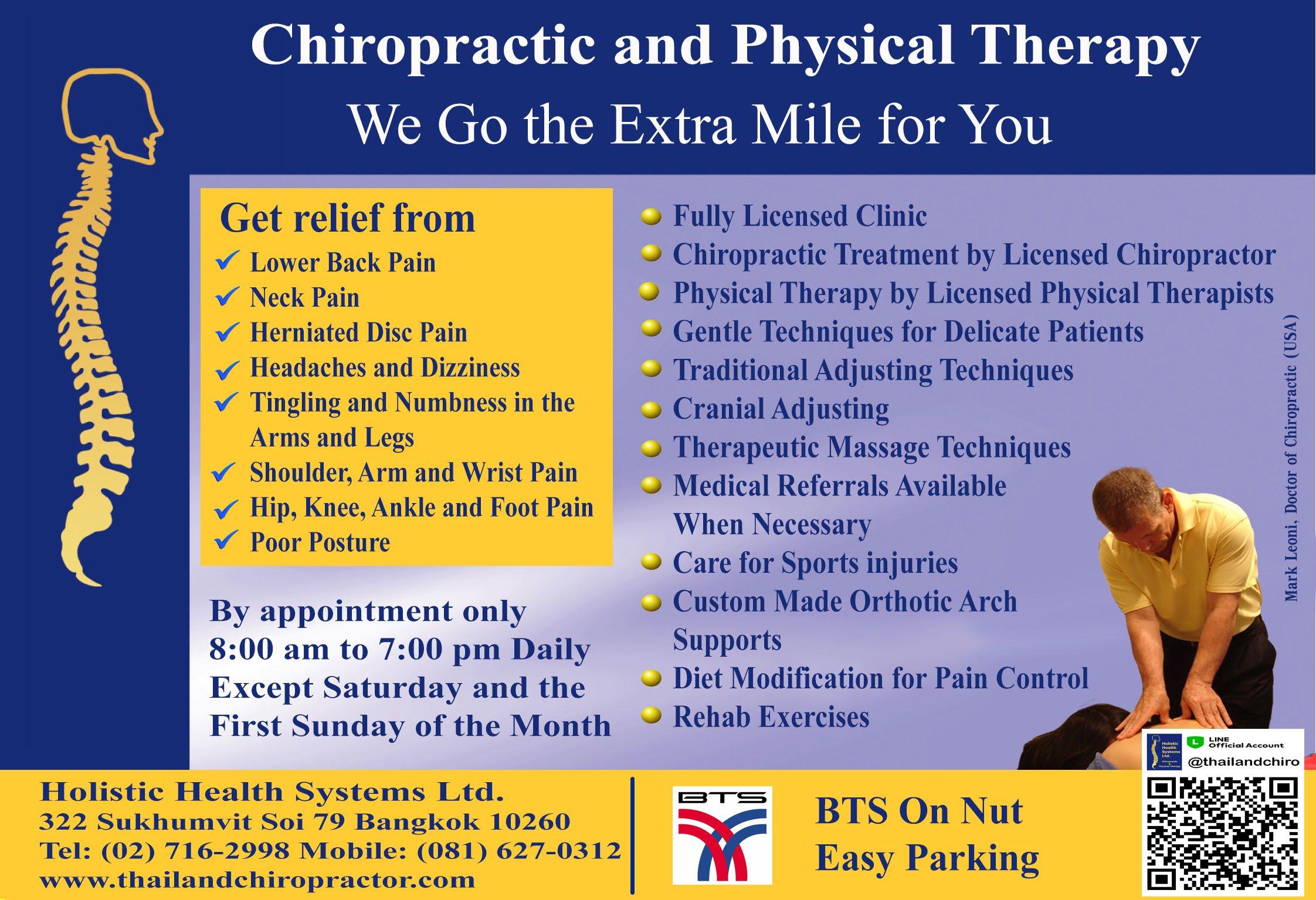



Pediatic Dentistry (Oral Checkup for Babies & Children)
Orthodontic Braces & Invisalign (Adults, Teens & Children)
Sedative Dentistry for Dental Anxiety (Sleep, Nitrous Oxide, IV Sedation)


Missing Teeth Restorations (Dental Implants, Bridges & Dentures)
Cosmetic Dentistry (Veneers, Crowns, Teeth Whitening)

Visit our allaiance clinic BIDC at Emquartier, BIDC at Siam Paragon and JCI accredited BIDC dental center at Ratchadapisek.

A FANTASTIC WEEK FOR ALL!
By Nick Fieldhouse, Head of Year 7
Anticipation had already reached fever pitch among both students and staff before we even arrived at our home for the Year 7 Residential. Why? We were staying at a muchrevered new hotel for this trip: the luxurious and beautifully landscaped Novotel Rim Pae Rayong Resort. On arrival, students were in awe of the hotel’s three swimming pools, stylishly designed and recently renovated bedrooms, plush meeting rooms, magnificent grounds and pristine golden beach. What a location to be spending the next four days! A hotel such as this obviously
demands the highest levels of behaviour from students, and I’m pleased to say that they didn’t disappoint: the whole Year group were brilliant ambassadors for Bangkok Patana School.
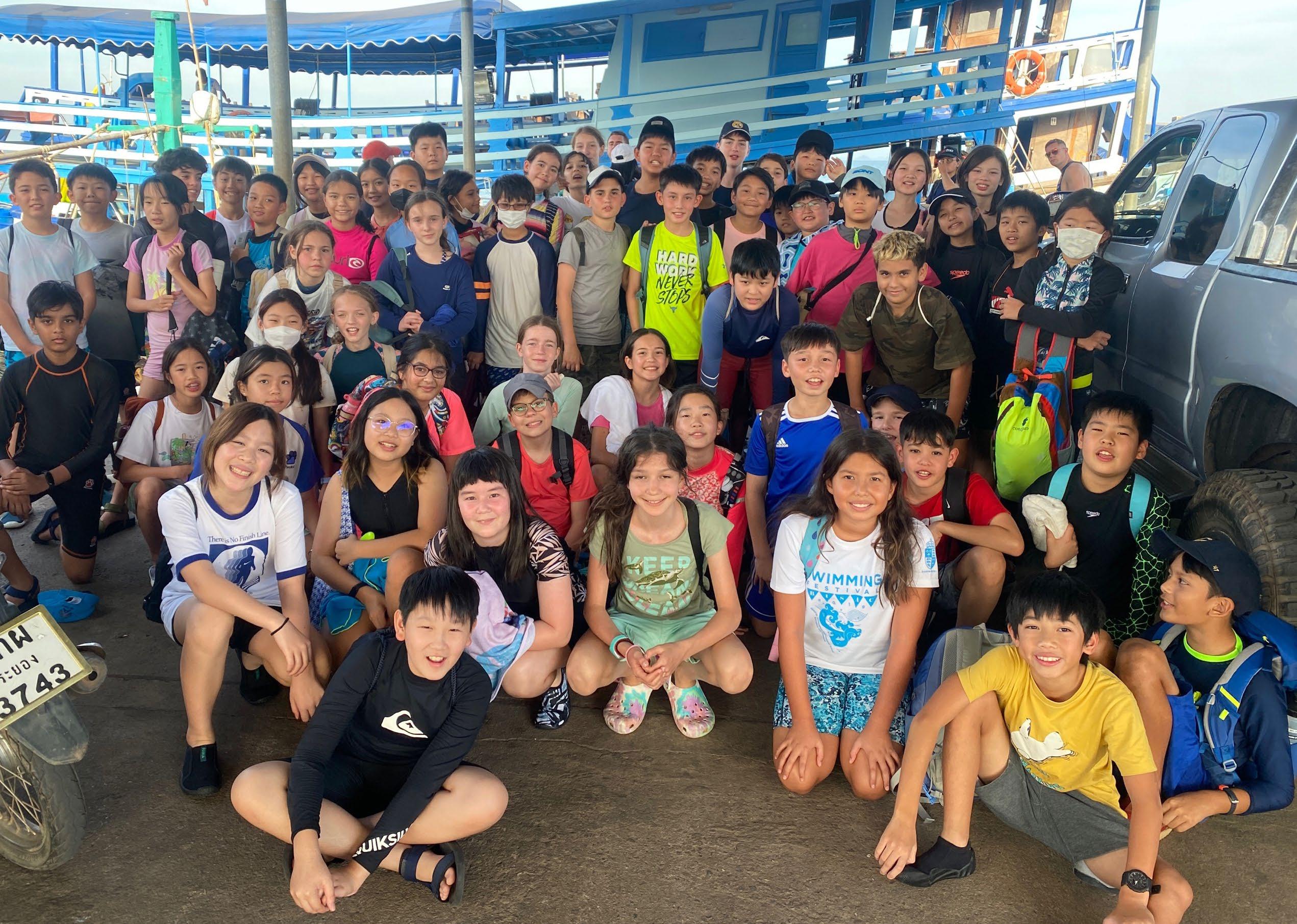
After our arrival and check-in on Monday, students briefly explored their rooms before having a delicious buffet lunch in the restaurant. We then moved to a carousel of afternoon activities; which included snorkel training in one of the hotel’s pools, beach games, a team-building activity in the garden and the hotly-anticipated safety tour. Students undertook these activities in one of
six groups, which had been carefully mixed up across tutor groups to ensure that they would be able to work with some friends, but also with less familiar people. This mix of groups provided the opportunity to build new friendships, alongside developing teamwork, communication and leadership skills. After the carousel of activities, students were given their daily free time: a chance to truly unwind in the hotel’s swimming pools, play football on the beach, buy a smoothie from the café, or chill out in the grounds with a game of Exploding Kittens. One of the swimming pools had
8 • Bangkok Patana School WELL-BEING
WELL-BEING
even been blessed with a small water slide, for which Mr Fieldhouse graciously put himself forwards to test for everyone’s safety. After dinner, we moved to our first evening activity: quiz night led by Mr Borrell. Several rounds of questions led to a closely run contest. A winning team was announced and duly rewarded with the first prize of the week. After a very busy first day, it was little surprise that (most) students fell asleep as soon as their heads hit the pillow.
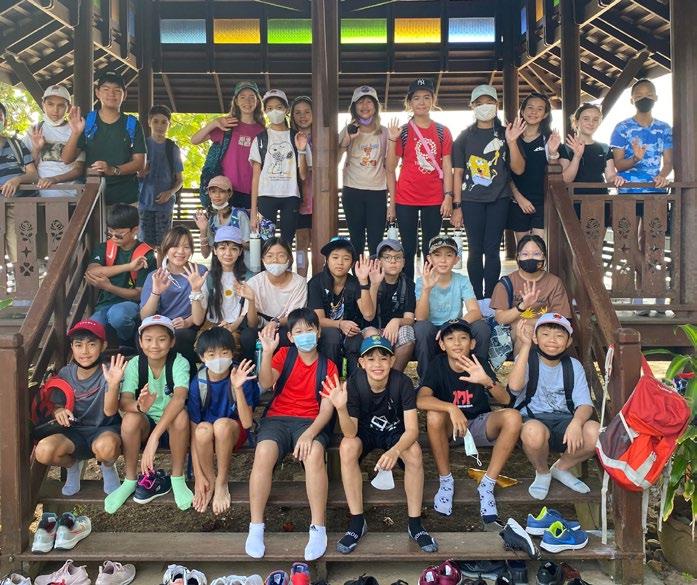



The next morning saw students enjoy what must be the best residential breakfast ever experienced: a range of buffet stations to select food from, including a fresh, cooked-to-order eggs station! We then headed to the meeting room for our daily briefing from our well-trusted and long-standing external activities provider. Across Tuesday, Wednesday and Thursday, each group rotated across five activities: a snorkel and reef exploration, a visit to a turtle sanctuary, a Thai cooking session, an eco-orienteering trip and kayaking in the lake at the nearby botanical gardens. This selection provided fantastic variety for students: there was something for everyone, and many of the activities enabled students to truly challenge themselves, pushing beyond comfort zones and testing their resilience! The post-residential review revealed kayaking and snorkeling to be the most popular activities of the week. Each day, students returned to the hotel for free time, followed by dinner and an
evening activity. The remaining evening activities on Tuesday, Wednesday and Thursday included “Trash to Fash” (an upcycling competition where students turned trash in the high-fashion items for models to wear down a catwalk display), movie night (Minions: Rise of the Gru was democratically selected before the trip) and the most popular evening of all: Disco Night (led with panache by our very own DJ Turner). Every evening we finished off our night with quiet journaling time – a chance for reflection on the day’s successes and challenges, as well as an opportunity to help students settle themselves before bedtime.
On Thursday, the final group to visit the Turtle Sanctuary delivered the money that had been raised by the Year 7 Bake Sale: a whopping THB 37,341! Thank you to all involved across our community
for this fantastic achievement. On Friday morning students were given time to pack up their belongings before we all headed to the meeting room one final time for the presentation of some special prizes to students who had particularly stood out across the week. Awards for perseverance, kindness, being a teamplayer, going above and beyond and being dependable were all given out, alongside the ‘Star of the Week.’ After some final notices of thanks, we headed to the buses for our trip home. A fantastic week for everyone!

TERM 2 – 2023 • 9 Bangkok Patana Magazine
PARTICIPATION AND POSITIVITY
By Yvonne Brown, Head of Year 8
The Year 8 Residential Visit to Kanchanaburi was a five-day adventure filled with thrilling activities, unforgettable experiences and a whole lot of fun!


On the first day, as parents waved off their children, I am sure they couldn’t help but feel a mix of emotions. Some felt a sense of relief, finally getting a break from the constant chatter and noise, while others felt a twinge of sadness as
they watched their little ones grow up right before their eyes. But as the students excitedly boarded the bus, it was clear that they were ready for an adventure with their friends. Year 8 students were prepared for a device-free journey with some “old school” board games, card games and lots of singing. The Backstreet Boys’ “I Want It That Way” and “Let It Go” from Frozen were quickly cemented as the songs of the trip, they
resurfaced on every bus journey, the talent night and, of course, at the disco.
On arrival, we were greeted by smiling resort staff and went to find our rooms (which had a beautiful view of the River Kwai), have lunch and get ready for the ice-breaker activities on the field. It was great to see the students throwing themselves into the activities with enthusiasm, a really positive start, setting the tone for fantastic participation throughout the week. The students enjoyed a rotation of activities over the next three days –some designed to link in with the school’s History curriculum, some were to appreciate and enjoy the natural surroundings and others aimed to encourage students to reflect on their personal attributes. Prior to the trip, Year 8 students had been thinking about their own character strengths and recognising strengths in others. Certificates were given out each day to students who had demonstrated using these strengths during the activities.
One of the highlights of the trip was visiting Elephant Haven, where students had the opportunity to prepare food, interact with and learn about these gentle giants. Not only was it a chance for
10 • Bangkok Patana School
WELL-BEING
students to see elephants up close, but it also allowed them to learn about the importance of conservation and the efforts being made to protect these animals. Another memorable activity was the obstacle course, where students had to work together to navigate through a series of challenging obstacles. The course was designed to push the students both physically and mentally, and it was great to see everyone encouraging and supporting each other throughout the experience.
The visits to the Thai-Burma Railway Museum and Hellfire Pass provided students with a better understanding of the region’s history. It was an important learning experience, with students getting a glimpse of the sacrifices and struggles of the people during the Second World War. They had some quiet reflection time at the War Cemetery where they placed a rose on a grave and wrote a diary entry of that person. Another highlight of the trip was the visit to the Erawan Falls, which is a beautiful waterfall located in Erawan National Park. Students hiked up to the falls, took a refreshing swim
and enjoyed the natural beauty of the place. In the evenings, there were a variety of activities for students to participate in. A talent night, quiz, movie night and disco were all organised for the students, and it was great to see so many of them getting involved and having fun.
Overall, the Year 8 Residential Visit to Kanchanaburi was a success, with
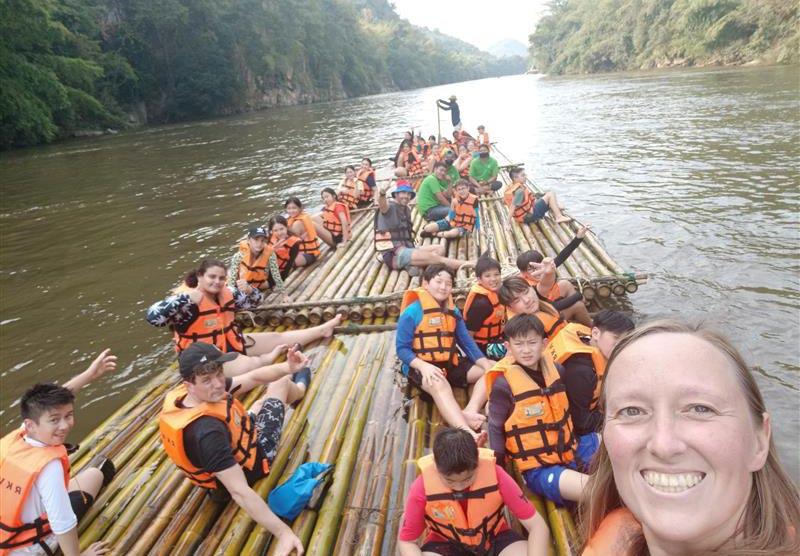

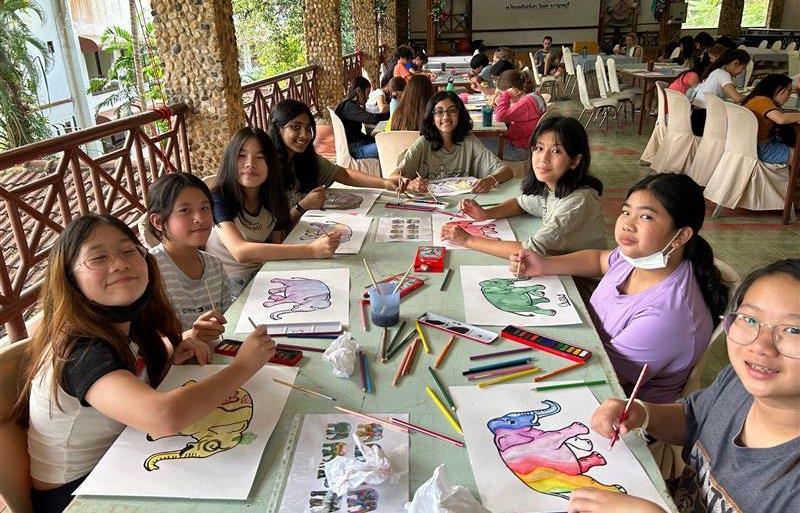
enthusiastic students and great participation throughout the trip. It was a fantastic opportunity for the students to bond, learn new things and make memories together. The activities and experiences they had in Kanchanaburi will remain with them long after the trip is over and will undoubtedly shape them in a positive way.
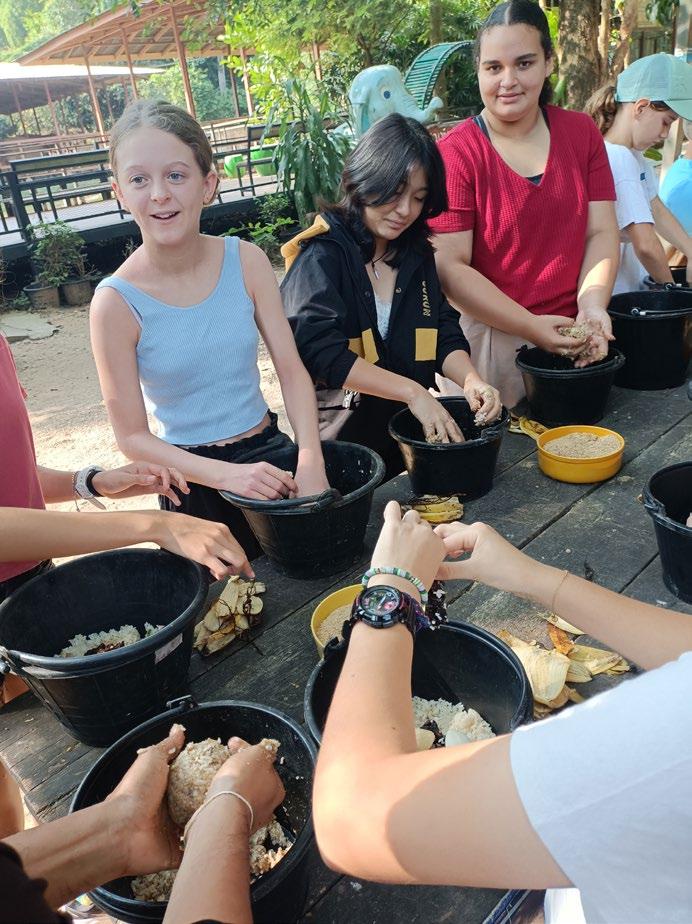
TERM 2 – 2023 • 11 Bangkok Patana Magazine
WATER RAFTING AND UMBRELLA CRAFTING
The Residential Visit is an eagerly anticipated date in the calendar for Year 9 students. What isn’t as eagerly anticipated, however, is the 5:00am meeting time at Don Meaung Airport! Despite some tired faces and wide yawns, we checked in, departed the airport and arrived in Chiang Mai unscathed. Thank you to Year 9 students and parents for making the airport a smooth process.
The Royal Ping Hotel is set within beautiful grounds approximately 70km from Chiang Mai. As we arrived at the hotel, students checked in, dropped off their bags and ate lunch. The itinerary for the week was jam-packed, meaning Groups 1 and 2 had to prepare to leave for camping right away after checking in. The camping element of the trip is one that students tend to enjoy most, as they camp next to the river and enjoy toasted marshmallows in the evening after displaying their abilities in the talent show. The day after camping, students go white water rafting which is the major highlight of the Year 9 trip. In the student feedback survey, white water rafting was highlighted as the most enjoyable aspect of the trip. I’m pleased to say we managed to bring all students back safely, despite two that tumbled in the water out of the six groups that rafted. I’m sure this is a moment that both students will always remember! One student described the rafting as “one great big water slide” – a nice description of the afternoon. A special thanks to Wild Planet for their thorough safety checks and for making this aspect of the trip exciting for all participants.
Whilst two groups were rafting, the rest of the Year group were either cycling

 By Shane Owen, Head of Year 9
By Shane Owen, Head of Year 9
WELL-BEING
and kayaking at the idyllic Moe Ngat Lake or were at the hotel cooking, painting or honing their physical movements in Thai boxing and dancing. Staff had the pleasure of tasting the food cooked by students and I have to say the noodles and coconut-based dessert were delicious! My advice for students next year would be to consider how much salt they add to their stir fry – luckily there was plenty of water on hand.
From 7:00pm onwards, evening activities took place. These consisted of a quiz night, games night, movie night and a disco. Student feedback showed that the disco was the most enjoyed evening activity and I think we can all agree that Zora’s dance performance was amazing. Thank you, Zora! Another big ‘thank you’ goes to the staff members who ran the evening activities – they were so carefully planned!
To conclude, the Year 9 Residential was a major success. Below are some of my favourite quotes taken from the student feedback survey:
“The water was incredibly cold, but I liked rafting with friends and having helpful guides made it much better.”
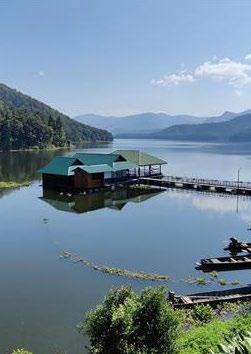
“I enjoyed the activities, particularly white water rafting and cycling. The views were beautiful and the nature was amazing. I loved camping as well.”
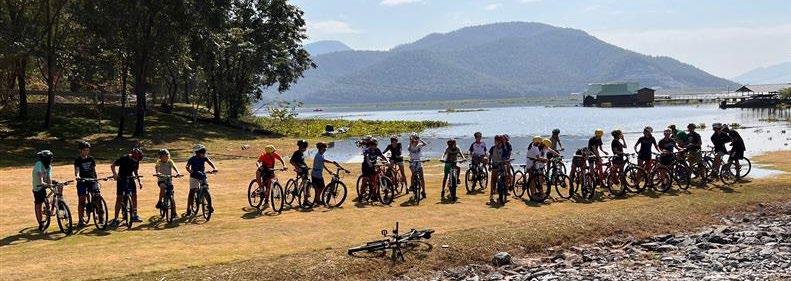
“I enjoyed the activities and also the free time that we had because I got to talk more with my friends.”
“I enjoyed hanging out in the airports with my friends before the flights.”
“During the times that we could just chill as a Year group, bonds were formed that would never have had a chance to within the normal school setting.”
I am confident the aims of the Year 9 Residential Visit were fulfilled and I look forward to doing it all again in November next year when we visit Khao Yai!
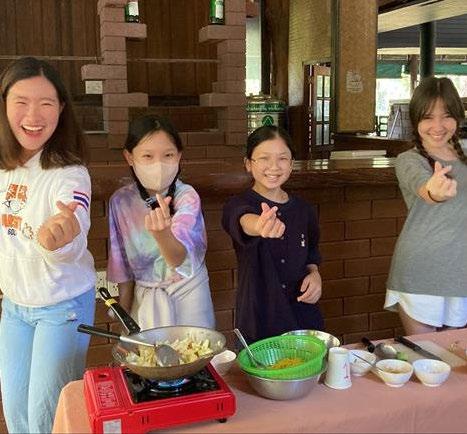

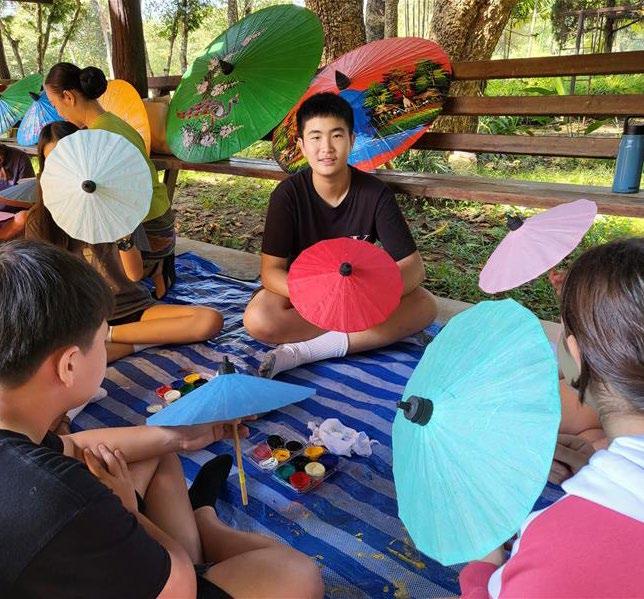

A MEMORABLE EXPERIENCE
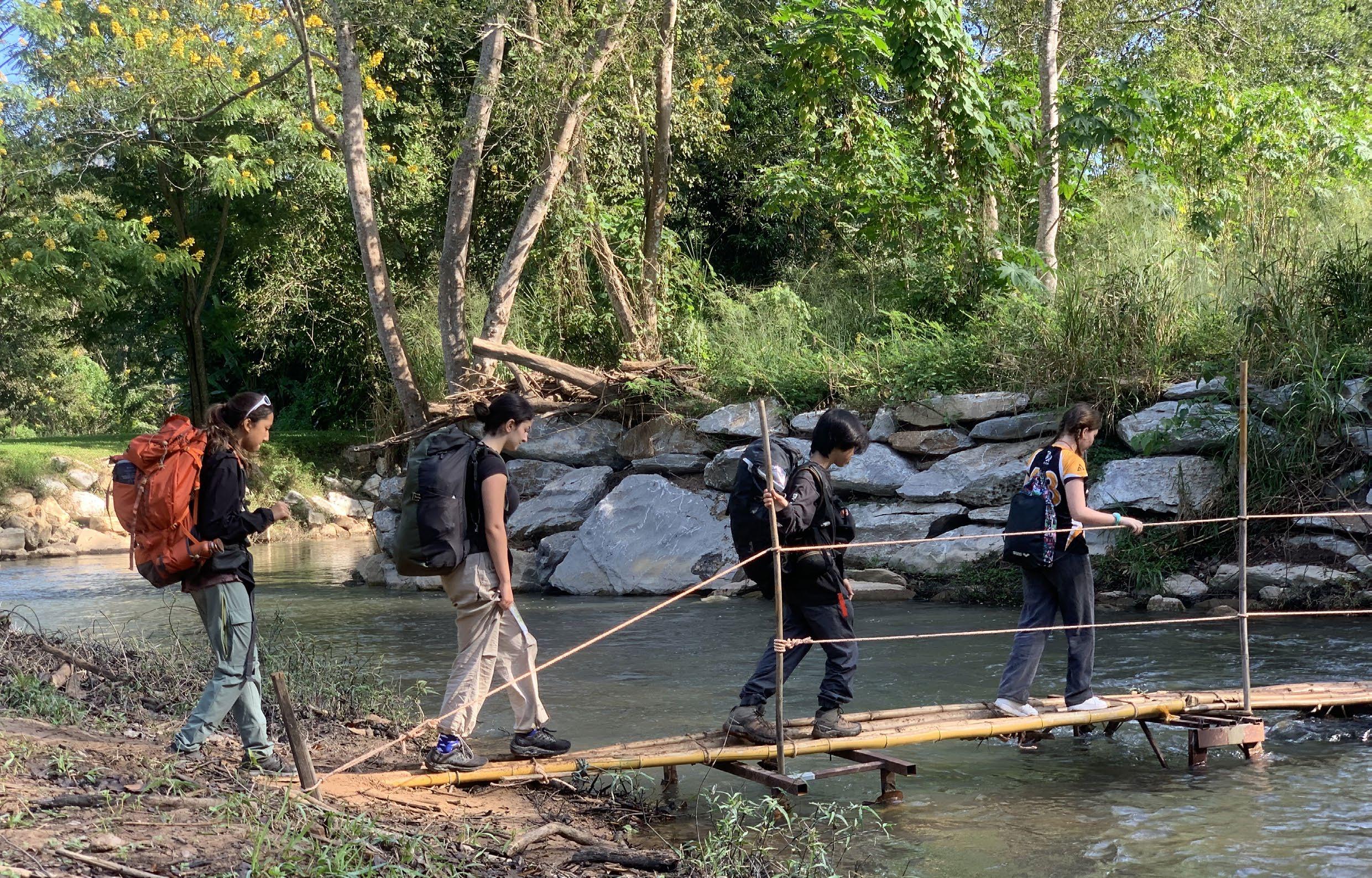 By Claire Dale, Head of Year 10
By Claire Dale, Head of Year 10
Year 10 students embarked upon an exciting and challenging Residential Visit, where they were able to push their limits, strengthen relationships and have an unforgettable time together. Set in the picturesque Khao Yai National Park, we enjoyed a variety of activities ranging from hiking, camping, water park fun, cooking and archery. Students had the chance to experience something new and exciting every day, surrounded by stunning landscapes.


Hiking through the lush jungle terrain of Khao Yai, Year 10 students were challenged in new ways as they navigated their own routes, crossed streams and carried their backpacks with essential supplies. They needed to rely on their own resilience and determination whilst working cooperatively and inclusively with their group. Our students amazed themselves and their teachers with their strength
and determination. They pushed through and were able to complete the hike and camp with a genuine sense of accomplishment. The water park at Scenical World was so much fun. We cooled off and enjoyed the various water slides and attractions. There were lots of happy, smiling faces and the students shared that this was their favourite day time activity of the Residential Visit.
Year 10 not only had the chance to engage in physical activities, but they also gained valuable skills through Thai cooking classes by learning to master the art of preparing two traditional dishes – Pad Thai and Som Tam. Students also learned more about local Thai fruits that are grown in the gardens of the resort, including their use in Thai Cuisine and how parts of the trees can be used to make practical things like bowls and even toys for babies. Expert archery instructors took
14 • Bangkok Patana School WELL-BEING
the time to teach our students proper technique whilst ensuring they understood safety measures for handling the equipment. They practised their aim and accuracy by shooting at targets and received encouragement and support from their teachers and peers in this fun activity.
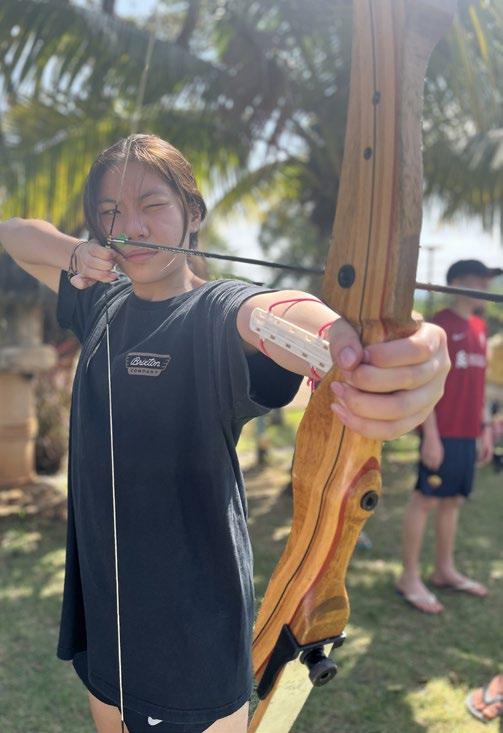


The evenings were filled with fun and lots of laughter. Year 10 students loved disco night where they danced and sang to their favourite music. Karaoke was another highlight, with students cheering on their friends while they sang and entertained. There were also some brilliant surprises! A particularly special experience was toasting marshmallows on a campfire and watching the beauty of the lunar eclipse in the clear night sky.
Perhaps the most enjoyable and memorable time of the whole trip was afternoon free time in the resort. Bike rides, games of cricket and volleyball really brought people together and the students really valued this time connecting with one another – away from their devices and social media. It was wonderful to observe the students interacting socially, with new relationships forming and existing relationships becoming stronger through this quality time spent together.
The trip was a truly unforgettable experience for our students. They not only developed key character strengths, but also fostered strong bonds with their peers and gained new levels of self-confidence. One student commented, “I loved the opportunity to connect with my classmates outside of school and have conversations with them beyond academics.” We are confident that the memories and lessons gained on this Residential Visit will stay with our students for a lifetime.

TERM 2 – 2023 • 15
LET’S TOK ABOUT IT
By Ansh Narula, 12C
Alas, the final Residential Visit for Year 12 students had arrived. Once we had all loaded our suitcases onto the buses and settled in, we began our journey to Nakhon Nayok. To a few, this Residential Visit initially appeared a bit less glamorous and exciting due to the various lectures and projects which would be taking place throughout the five-day trip; however, to most, this trip was a fantastic opportunity to escape the hustle and bustle of the rigorous IB programme.
The Year 12 Residential Visit was primarily focused on the subject of TOK (Theory of Knowledge), which is a mandatory part of the IB Diploma Programme and encourages students to question the nature of knowledge and what we claim to know. Throughout the five days, we attended multiple lectures about the various Areas of Knowledge (AoKs) in relation to TOK, such as History and the Natural Sciences, which helped all of us gain a deeper understanding of crucial concepts and insights for our future Extended Essays (EE). For example, in our History workshop we investigated how people’s perceptions of various historical figures contrast over time and the significance of these changes in attitudes. Another example is from the Ethics session, in which passionate and thoughtprovoking propositions were made about the Trolley Problem as we explored the different ethical theories used to approach this notorious quandry.
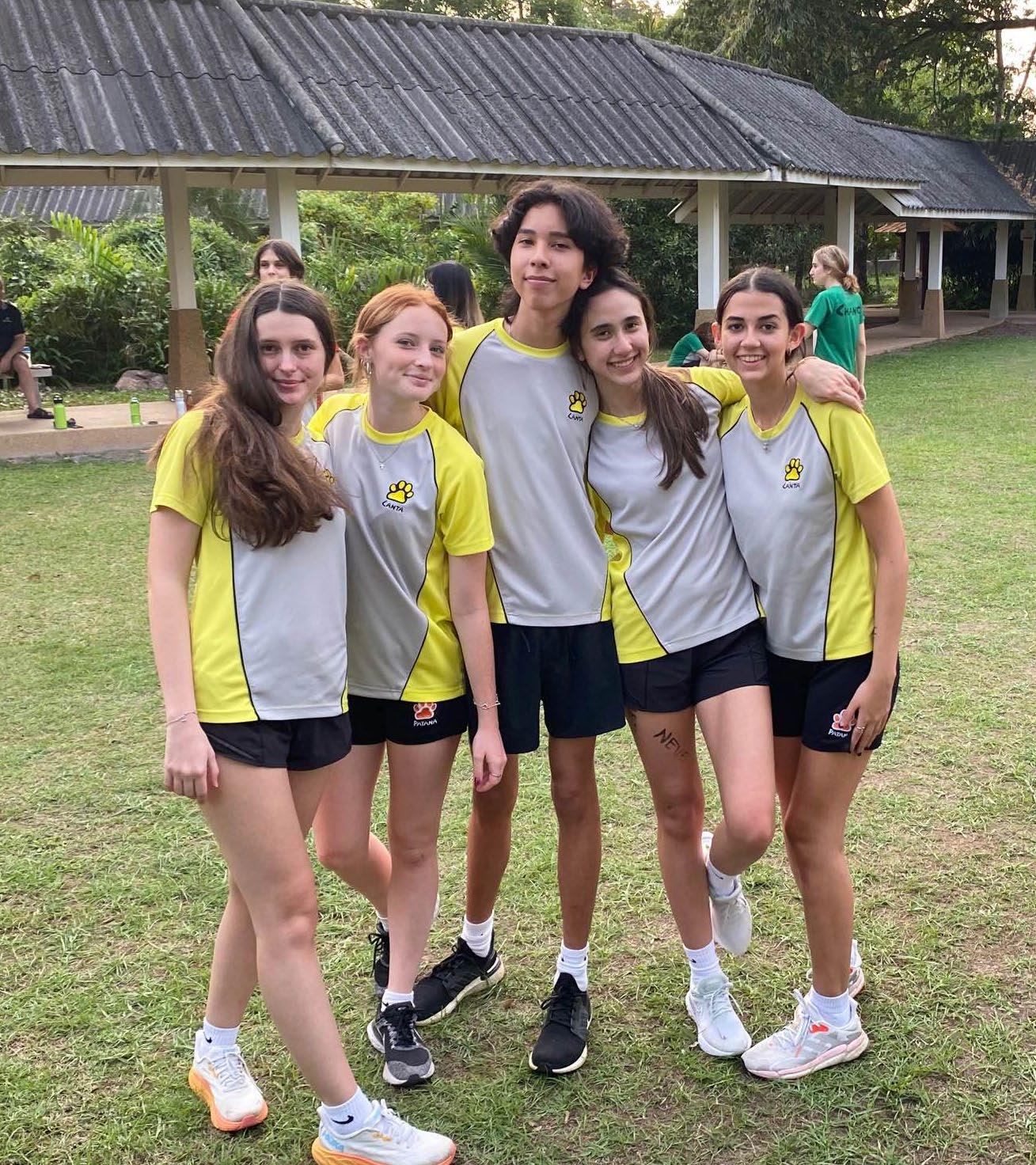

In tandem with the workshops was the Group Four project, in which each group worked on determining a solution for making life better on Earth. This project allowed every student in each group to bring in their interests and specialisation from various fields, such as Chemistry or Computer Science, in order to collaborate together and present a cohesive final presentation in front of our peers. Overall, each presentation provided intriguing ideas about how we can improve the quality of life on Earth in an applicable manner. Apart from the workshops and projects, we were also given ample amounts of time to decompress and relax with our friends. Karaoke, sports and a variety of games were offered as ways to destress from the working environment of the morning.
The main highlight for many were the evening activities, which were thoughtfully planned by our teachers. The “Hunger Games” compelled every student and teacher into a “tournament” where different “factions” battled each other in a wide variety of activities, allowing students to uncover their hidden talents (such as flexibility) to impress the Year group. Another game called “Dead Ant” engaged students in all sorts of crawling and movement. Detangling our group involved wit and speed, and all evening games promoted a competitive yet
16 • Bangkok Patana School LEARNING GLOBAL CITIZENSHIP
YEAR 12 RESIDENTIAL VISITS
WELL-BEING
warm environment, welcomed by all students. The Thursday Night Disco was thoroughly enjoyed by Year 12 students, providing an opportunity to let go and dance joyfully to our favourite songs. At times we may have made ourselves look crazy to our teachers, but in reality, we were all relishing our last Residential evening and making the most of it as a cohort!


On Friday morning, as our teachers completed the final room check, we marveled at the natural scene full of wildlife around us at Cholapreuk Resort and boarded the bus to embark on our two-hour journey back to school. Whilst tired in appearance, this last Residential Visit was certainly memorable, if not the most memorable, experience for many of us as we developed long-lasting bonds between ourselves on an individual scale and as a cohort in general. The knowledge we picked up from our workshops and projects, in addition to the enjoyable activities during the evenings, has certainly created a Residential Visit to cherish for many years to come!


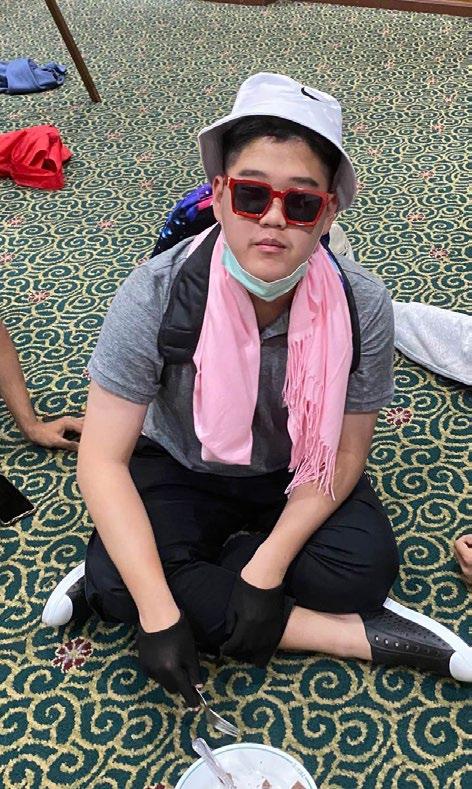
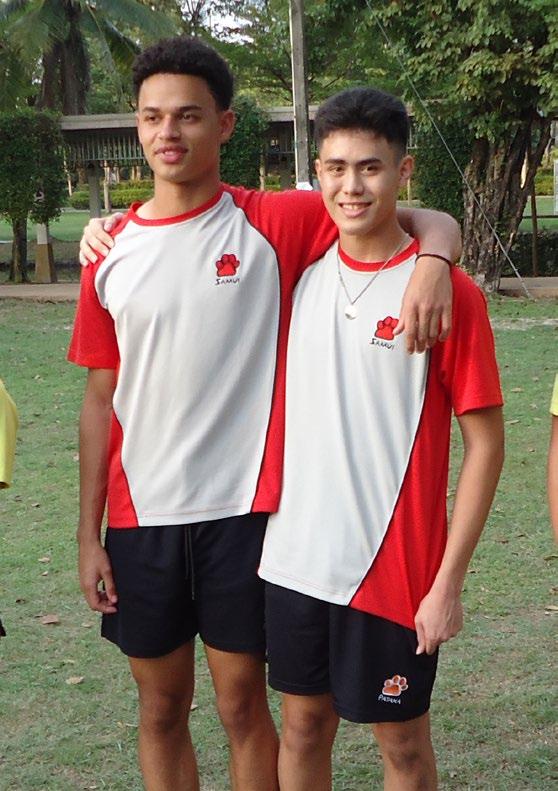
TERM 2 – 2023 • 17 Bangkok Patana Magazine
BRAIN BOOSTERS
By the Primary School Learning Support Department
This is the second installment of the Brain Boosters article – if you enjoy the games outlined here, be sure to check out the first installment from the Term 1 Magazine!
• Describe an object without using certain words (can you describe a pencil or an elf without referring to them by name) this will cause you to recall and visualise it in your mind.
• Draw what you imagine – when reading a book draw the scene or the characters as you imagine them.
• Spot the difference or Kim’s Game – put a selection of objects out and then cover them, removing one or two of the items. Can your opponent work out what is missing?!
• Matching pairs card game requires remembering the placement of certain cards.
• Word scramble – can you recognise words when the letters have been scrambled?
• Construction games – games that involve 2D or 3D copying are good for developing visual memory.
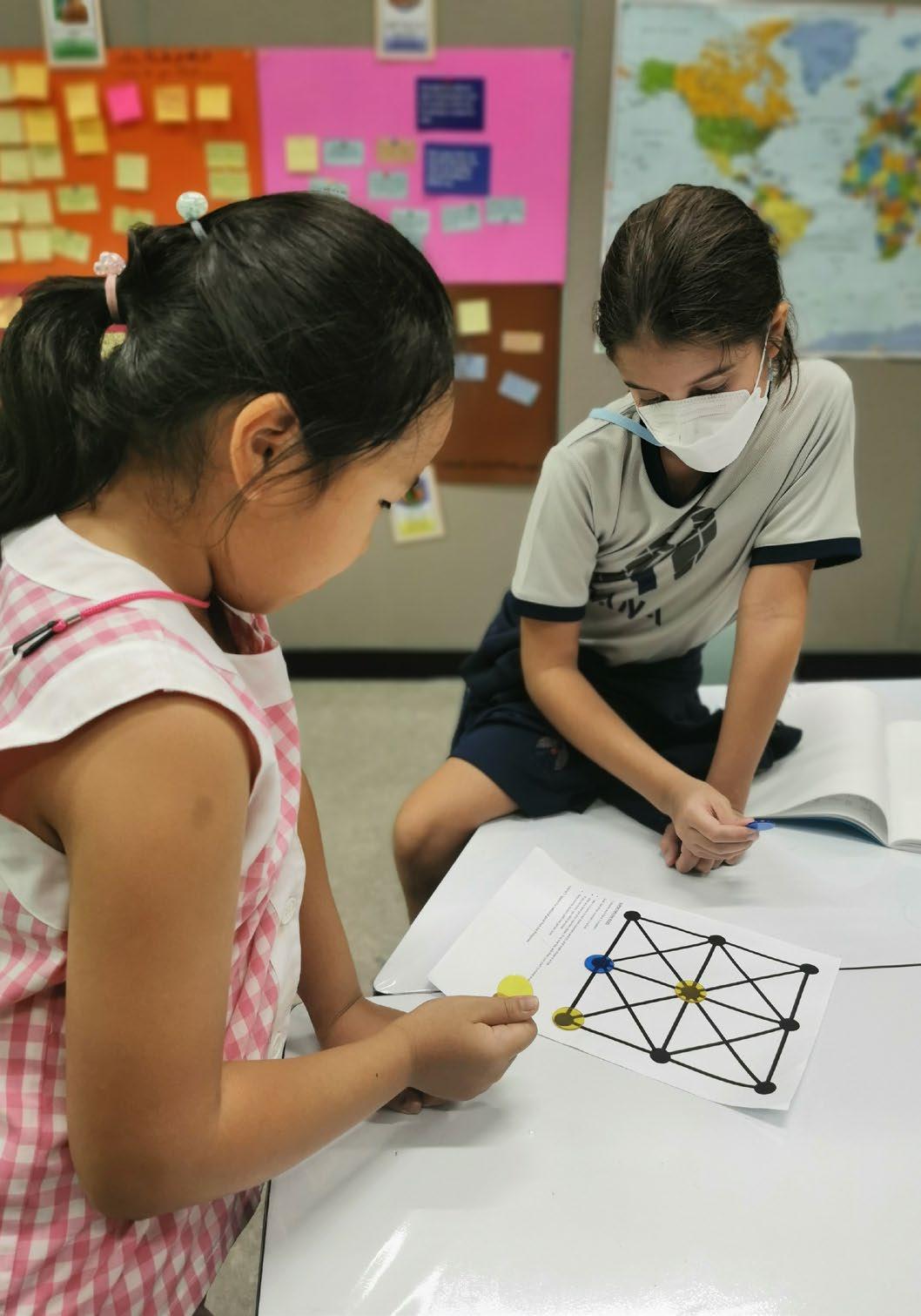
Anna Lawlor: Reading for Language Development
Reading to children has many benefits, including supporting their language development. When reading together with your early learner, remember the most important thing is that your child is enjoying looking at the book together with you. Above all, have fun!
Books that repeat phrases may catch your child’s interest and make it easier to remember important words/sentences. Simple storybooks with a beginning, middle and end are good to get conversations started about predictions and alternate endings. Non-fiction books on topics such as animals, occupations etc. will expose them to new vocabulary and provide topics for you to talk about together.
Kate McClenaghan: Strengthening Visual Memory
Visual memory is one aspect of a larger area of visual perception skills. It focuses on recalling visual information we have seen and is something we use throughout our everyday lives – reading, spelling, remembering a password, using a calculator, remembering faces, etc. People use visual memory to remember small details in their day-to-day life and to help them to describe prior events. You use visual memory to try and remember where you put those missing car keys! Here are some activities to help strengthen visual memory skills:
Try to let them choose a book – suggesting a book from time to time is great, but when children choose on their own you will know that they are really interested. Let your child hold the book and turn the pages – some children like to get involved and have some control over reading the book. Let them “read” the book how they want to (i.e. at their own pace and interest; some children might want to look at a few pages whilst others just want to flip through the book).
It’s okay to change things up! You don’t have to read every word in the book, you can simplify things or just talk about the pictures. Some children love reading the same book again
18 • Bangkok Patana School LEARNING
YEAR 12 RESIDENTIAL VISITS LEARNING
and again, and that’s okay! The repetition will help them learn new vocabulary. Once your child is familiar with a story, you could try acting it out. Finally, think about making your own book together - you could include photos of favourite people, things, objects from places they have been, etc.
Jen Chan: Improving Memory
Simple card games like Uno, Go Fish and War can improve working memory in two ways. Your child has to keep the rules of the game in mind, and also has to remember what cards they have and which ones other people have played. New card games are joining old favourites - the Spot It! card game, or the Timelines Series for older students, are fast-paced games that help practice visual discrimination and memory. You can find more detail online by searching for the Spot It! card game.
Lorraine Illing: Developing Auditory Memory
Recalling events or stories is a great way to practice and increase retrieval speed. You can encourage your child to

recall and describe recent activities. If necessary, give clues and prompts to help if they have not retained the information. Encourage your child to retell stories you have read. You can use a visual prompt of key question words (who, where, when, what, why, feelings) to help children remember. There are also memory word games for the whole family such as The Shopping Game – each child must remember the last items the players before bought and add a new one, The Minister’s Cat Game – each player takes turns providing an adjective for the cat alphabetically, e.g. ‘The minister’s cat is angry, bold, cute’ etc.
You can give your child messages to pass to others. “Tell your sister to bring me her blue socks”, “Call Dad and ask him to buy eggs and milk on the way home”, “Ask Grandma if she would like to come to lunch on Saturday at 12 o’clock”. Or give your child a password they must remember to enter each room in your home. Make your own sound shakers by filling small empty plastic juice bottles with things such as rice, pasta or sand to make different sounds when shaken. Take turns to close your eyes and listen when they are shaken and find the right one. Next, do two or three sounds in sequence and see if your child can copy your pattern.
Make an obstacle course around your house, garden, or in the park and give your child instructions to remember and follow. Start with two or three steps and make the instructions gradually longer. Play games where your child needs to follow instructions using farm animals and blocks. “Make the cow jump over the small fence. Make the dog stand on the blue block”. Use a car mat or draw your own roads with chalk and have your child follow instructions. “Drive the blue car past the tree to the petrol station. Park the red car near the biggest bridge”. Make a collage by cutting out pictures from magazines or junk mail and give your child instructions to follow to paste them on to a page.
Emma Willinger: Working with Fine Motor Skills
The development of fine motor skills is hugely important for your child. As the small muscles in your child’s hand develops, so does their dexterity. The ability to coordinate fingers and building strength in the hand supports with tasks such as, getting dressed, eating, tying shoelaces and writing. As children get older, one of the obstacles they often face is developing stamina for writing, maybe saying their hands are tired. By building up strength in the hand, it can support a child as the writing expectations in school increase. Here are some activities that support fine motor skills:
Making things with clay or playdough; picking things up with tweezers like beads, buttons or small objects; Hama beading; craft activities that involve cutting and gluing; threading beads, buttons or even pasta tubes onto string; building using small bricks such as, LEGOs; and playing games like Tiddlywinks, where you must flick counters into a cup or bowl.

TERM 2 – 2023 • 19 Bangkok Patana Magazine
WHAT KIND OF GLOBAL CITIZENS ARE OUR STUDENTS?
By Caroline Ferguson, Creativity, Activity, Service (CAS) Leader
At Bangkok Patana School, Global Citizenship (GC) is embedded in both our policy and practise. We strive to develop young people who are “critical thinkers”, “committed to integrity and equity” and “active stewards of the environment and communities” (Bangkok Patana School, 2022). In my position as the International Baccalaureate (IB) Creativity, Activity and Service (CAS) Coordinator, I am interested in the role CAS, and especially active participation in service, plays in developing these attributes. To what extent does engagement and reflection on CAS experiences produce the type of “global citizens” Bangkok Patana seeks to produce? The kind of global citizens needed to forge a “more just, secure and sustainable world” (OXFAM, 2015, p. 5)?
Concerns have been raised over the extent to which participation in service, rather than developing the kind of global citizen we envisage, in fact promotes a feeling of superiority in students and leads to the perpetuation of what can be termed a “neo-colonial” attitude in which the ‘Global North’ is seen as superior to the ‘Poor South’ (Andreotti, 2006). At the same time, many academics in the field of Global Citizenship Education (GCE) doubt that engagement in service always leads to a depth of learning about global issues or that it encourages what might truly be termed
“critical thinking”. A form of GCE which unwittingly develops such negative attitudes, while failing to deepen students understanding of the world is termed by such postcolonial writers “soft” GCE (Andreotti, 2006). With this in mind, I embarked on a piece of research exploring the following research question:
To what extent do students undertaking CAS service experiences exhibit motivations, learning, values and attitudes which evidence a “soft” form of Global Citizenship Education?

The research was formulated around these sub-questions: What motivates students to engage in their service experiences? To what extent have students developed a critical knowledge and understanding of global issues? What are students’ attitudes towards the recipients of their service experiences, and what are the emotional outcomes for the students?
Over 130 students from the Graduating Class of 2023 participated by completing an online questionnaire. The findings from this survey were further investigated through small focus group discussions, involving students engaged in four service experiences: Amnesty, Mercy Centre Tutoring, The Ruth Centre and Rise (see Figure 1.0).
20 • Bangkok Patana School GLOBAL CITIZENSHIP
Description of Aims
To raise awareness about Amnesty’s human rights campaigns within the school community.
To support and enhance the education of children who live in a residential care home in a slum area of Bangkok.
To raise funds to support the construction of a home for the elderly and participate in the construction project in rural Thailand.

To provide financial aid to support underprivileged children from a day care centre in Bangkok.
So, what did I discover? In terms of motivation, the dominant motivation for engaging in service was humanitarian. In the survey, 98% or respondents either agreed or strongly agreed with the statement “we are all part of a common humanity and so should help others” (see Figure 2.0).
Most students foregrounded caring attitudes which focused on the importance of the welfare of the recipients of service and the strength of personal relationships, for example:
“With visits to the Place of Grace... you can create a sense of trust and build positive relationships through that.” (Rise S21)
TERM 2 – 2023 • 21 Bangkok Patana Magazine Amnesty Mercy Centre Tutoring The Ruth Centre RISE Focus (Service) Group Service Type
Figure
1.0:
The Focus Groups – Service Groups and Participants
Advocacy Direct Direct and Indirect Direct and Indirect
Friends CAS Uni Application System Change Social Justice Responsibility Humannitarian Passion 0 10 20 30 40 50 60 70 80 90 100 % Responses Strongly Disagree Disagree Agree Strongly Agree
Figure 2.0: Why did you get involved in service?
1 All quotes are referenced with the focus group name and the student number in that group.
However, it was noted that students were also motivated by the desire to act and get involved, in other words they want to make a difference:
“People in the school are able to do a tangible thing … that also makes them feel as if what they are doing is making a difference” (Amnesty S1)
With reference to learning, the research suggested that active participation in service does not necessarily lead to a deeper understanding of the associated local or global issues. The survey data indicated that students felt that their service experiences did not help them develop an exceptionally deep level of understanding, as figure 3.0 indicates.
One reason for this may be that students tend to focus on the service task itself rather than the wider social causes. This was especially apparent with the Mercy Centre tutoring group:

“The reason why we may not feel that we’re understanding the problems going on is because when you’re actually tutoring them, it doesn’t feel like you’re tutoring someone who’s underprivileged or part of, um, this orphanage.” (Mercy S2)
However, some forms of service, such as advocacy, and where research into issues is part of the experience, are associated with more learning. Students involved in Amnesty and the Ruth Centre, indicated that they felt that they had
a deeper level of understanding of the issues involved. In addition, there is evidence of some criticality, as some students are beginning to question cultural, social and political systems:
“These problems rather they’re because of ideas that exist institutionally and structurally” (Amnesty S2)
Finally, in terms of attitudes and values, the students recognise their own privilege and see themselves as having power to bring about change. As can be seen in Figure 4.0 over 52% strongly agreed with the statement: “I recognise my position of privilege and so must take action”.
22 • Bangkok Patana School LEARNING GLOBAL CITIZENSHIP
GLOBAL
Level of Understanding (10 indicates highest) % Responses 0 1 2 3 4 5 6 7 8 9 10 30 25 20 15 10 5 0
Figure 3.0: Do you feel that you have developed a deeper understanding of a global issue and its causes and consequences through your service experience?
CITIZENSHIP
However, there was no indication of the moral superiority which is seen to typify the student of “soft” GCE, but rather a high degree of empathy was observed:
In other cases, students showed admiration for the people they worked with. When asked to describe the recipients of their service, they used adjectives such as “fearless and courageous and really inspiring “(Amnesty S3), “positive” (Mercy S4), “optimistic” (Mercy S2) and “brave or strong or resourceful” (Ruth S1).

So, what are the implications of these findings? It can be concluded that the CAS programme at Bangkok Patana is a form of “soft” GCE, in that although there is no evidence of negative attitudes, the students predominantly exhibit liberalhumanist ideals. There is clearly the beginnings of criticality, but this must be built on. There is a need to embed research about issues into service and ensure that reflection on participation in service is truly critical. As such, a “critical, participatory pedagogy” is needed (Wasner, 2016). Our students are the future leaders of our world; indeed, they already recognise the fact that they have power. If they are to imagine different futures, they need to accept that there are other ways of organising our societies and economies.
Finally, as a Global Citizenship educator, I can see that there is a great deal of hope here, as our students do care, and they clearly care a lot. In the words of the Lorax:
“Unless someone like you cares a whole awful lot, nothing is going to get better. It’s not.” (Dr Seuss, 1971)
References:
- Andreotti, V. (2006) ‘Soft versus critical global citizenship education’, Policy & Practice A Development Education Review, (25290), pp. 40–52.
- Bangkok Patana School (2022) Guiding Statements, https://www.patana.ac.th/life-at-patana/about/guiding-statments/
- Dr Seuss (1971) The Lorax. Random House Books for Young Readers.
- OXFAM (2015) Education for Global Citizenship: A Guide for Schools. Oxford.
- UNESCO (2015) Global Citizenship Education TOPICS AND LEARNING OBJECTIVES. Paris.
- Wasner, V. (2016) ‘Critical service learning: A participatory pedagogical approach to global citizenship and international mindedness’, Journal of Research in International Education, 15(3), pp. 238–252. Available at: https://doi.org/10.1177/1475240916669026.
TERM 2 – 2023 • 23 Bangkok Patana Magazine
Figure 4.0: What is your role in service?
“I also think there’s just normal people that got unlucky with circumstances and that itself struck with me because I thought something could happen and I could end up like this.” (Ruth S3)
Strongly
Disagree Agree Strongly Agree
Disagree
0 10 20 30 40 50 60 70 80 90 100 % Responses
We are all part of the problem and the solution I reccognize my position of privilege and so much take responsibility We have knowledge and technology to provide solutions Even
small steps and acts of kindness count I have little power to make a real difference
SUPPORTING HOME LANGUAGES
By Daria Kirbai, Lead Teacher for Communication, Language and Literacy, Foundation Stage
At Bangkok Patana, we are enriched and broadened by the wide array of cultures and languages in our community. In Foundation Stage, we encourage parents to use their home language(s) and to support children’s Home Languages at school too. In this article, I will explain why we support Home Languages in Foundation Stage and how we do it.
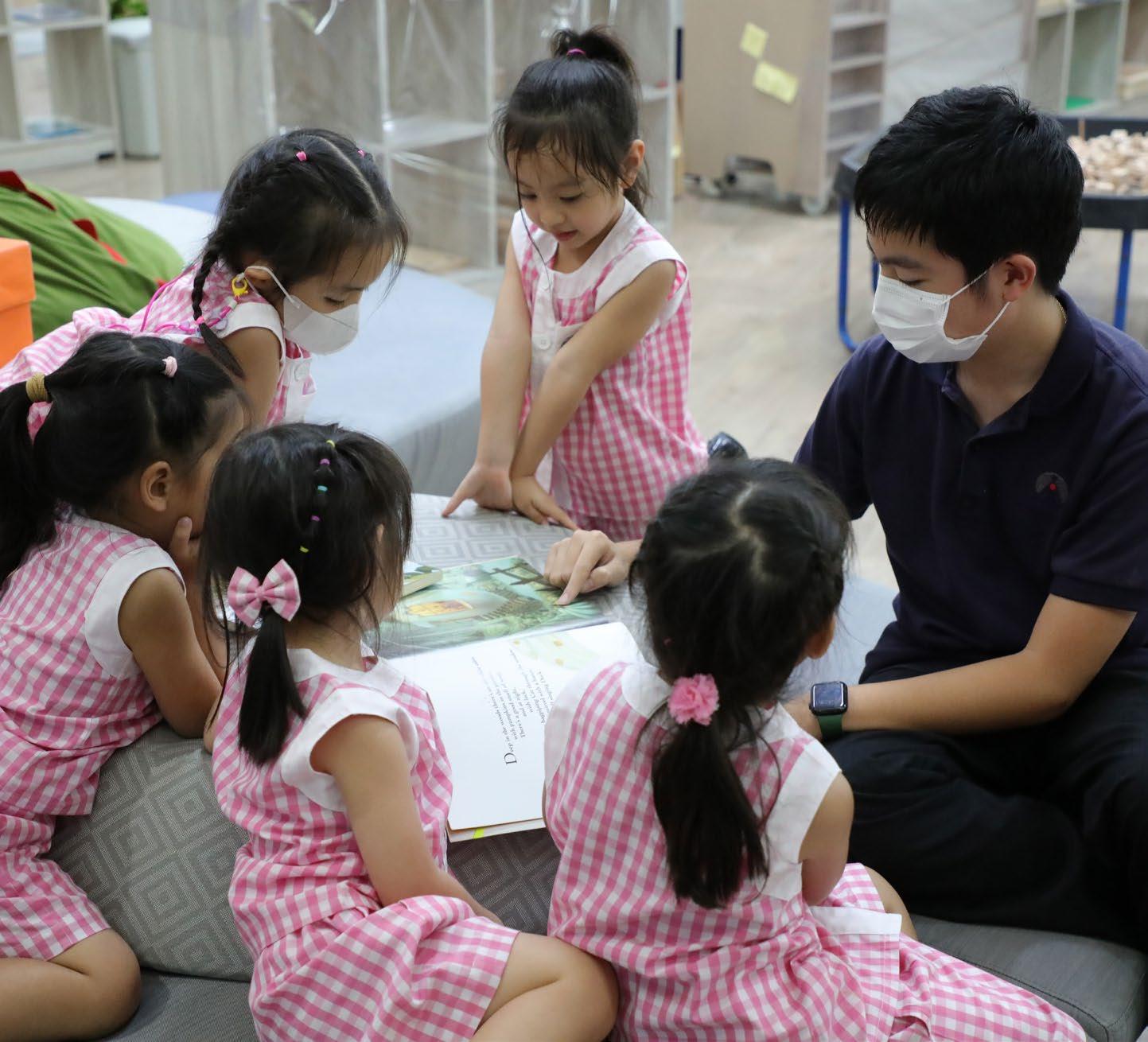
Researchers have found that speaking multiple languages provides a great benefit to young children. Developing the child’s Home Language provides the foundation for reading, writing and literacy in two or three languages. People who are bilingual switch between two different language systems. Their brains are active and flexible, so they develop more flexible strategies for thinking through problems. Research shows that compared to their non-bilingual peers, bilingual people have an easier time understanding math concepts, solving word problems, using logic, focusing, remembering, making decisions and learning other languages, among other critical thinking skills.
As COVID restrictions have been relaxed this year, we were incredibly excited to commence the Home Languages collaboration between Secondary volunteers and students in the Foundation Stage (FS). The purpose of this programme was to boost language development, as well as to show our children that their language and culture are valued and have a place at Bangkok Patana. In August 2022, Virginie Turner, the Secondary Home Language Coordinator, and I organised the programme and defined the languages to be supported. Soon enough, we had plenty of Secondary
students who were ready to volunteer with young children on a long-term basis. We wanted to ensure that Secondary volunteers were equipped and ready to work with children in FS. Therefore, before joining FS, Secondary students attended an induction session about safeguarding and ways to work with young students conducted by Sarah Gaughan, Leader of Learning and Strategic Development in the Foundation Stage.
In September, we had the pleasure of welcoming seventeen Secondary students to our FS setting and they continued to visit throughout both Terms 1 and 2. Secondary volunteers support Home Languages in FS once or twice
a week, depending on their availability. Secondary volunteers use their own Home Languages to interact with our young learners. We have Secondary volunteers supporting with Mandarin, Japanese, Korean, Thai, Portuguese, Dutch, Hindi and Guajarati. Secondary volunteers help us in a range of ways: sometimes they create resources that translate key phrases or vocabulary into a child’s Home Language; they often share stories and special cultural events with children from similar and different backgrounds to themselves; and they spend most of their time playing and learning alongside FS children using their shared languages.
24 • Bangkok Patana School LEARNING GLOBAL CITIZENSHIPGLOBAL CITIZENSHIP
The impact of this collaboration has been incredible so far. Secondary volunteers have developed beautiful relationships with our younger learners. It has been rewarding to observe FS students looking forward to seeing their Secondary volunteers with a huge smile on their faces, calling them best friends and having a sense of belonging. This cross-curricular project unites the Primary and Secondary schools and involves students’ enthusiasm, celebration of diversity and being proud of who they are. Both Secondary and FS students benefit from Home Language collaboration – below you can read more about why our busy Secondary students decided to join this programme.
Reflections from Secondary volunteers:



“I am so grateful for the opportunity to teach and support these heartwarming children in the Thai language. Not only do I learn how powerful their imaginations are, I also bring out my optimism for the world and appreciation for the things around me. Every day with them helps me unwrap my childish creativity and see the world through the eyes of others. These moments also foster my collaboration and leadership skills with people of very different ages. Tutoring the two students, alongside countless others, is for me truly a boundless beauty!” – Vachiravich (Turbo) Phantratanamongkol, 10Y
“In my fourth year of volunteering for the Home Languages Programme in FS, I have continued to enjoy meeting and mentoring students from similar
backgrounds as me. Interacting with the FS students in a ‘work-play’ environment helps them bridge the divide between an English-speaking school life and a family/home life where they may only speak their Home Language. Some students initially appear reserved when speaking to teachers and peers in English, but ultimately have the opportunity to communicate their thoughts confidently and clearly in their Home Language, which can be incredibly beneficial for their well-being and sense of belonging in the Bangkok Patana community. The Home Languages Programme is wonderful in supporting the FS students and is also extremely fulfilling for the volunteers themselves.” – Luanne
Poh, 13R
“In the Home Languages programme, I realised the responsibility I had. I found myself playing a very important role in these children’s lives. From their perspectives, I am the only adult figure in their campus life who can speak their Home Language. As someone who was in a similar situation with them, I found I have the power to support and guide them using my ability to speak the same language as them and my experience. In addition to that, when I recall the time I spent with the children, it is quite lovely. I sometimes get frustrated when I am doing this activity as they tend to scream while carrying me all around, but when I look back to the time I spent with them, I start to miss them.” –
Yiming Wang, 12E
TERM 2 – 2023 • 25 Bangkok Patana Magazine
ALUMNI STORIES LIFE AFTER PATANA

HOLLY DEJSUPA, GRAD’16
Holly Dejsupa’s journey has been a true tale of global exploration. Born a Thai national, she spent her childhood immersed in the vibrant cultures of Singapore, Malaysia and Japan, before finally settling in Bangkok. There, she spent eight years at Bangkok Patana, culminating in her graduation in 2016. Now, she has found her home in Surrey, United Kingdom, where she continues to explore the world around her.
Holly is currently a Doctor in Foundation Year 1 at the NHS, having graduated from the University of Bristol in 2022 with an MBChB (Bachelor of Medicine & Surgery) and an intercalated BSc (Bachelor of Physiological Sciences).
From the start, Holly had a strong appreciation for science and interacting with people. “I can’t recall the moment I said, ‘I want to be a doctor’ — I guess I naturally fell into it after ruling other things out, with my love for the sciences and dealing with people. The journey certainly hasn’t been easy, and there were many moments during medical school where my resilience was pushed to the extreme. But as tough as medical school was, my passion for medicine was great enough from the beginning that I enjoyed it overall. And I can honestly and sincerely say that right now, I can’t imagine myself doing anything else.”
Thinking back to her time at Bangkok Patana School, she fondly remembers the memories she made there. As a musician, Holly deeply appreciated the opportunity to take part in all of the school’s concerts.

“The entirety of it all — late-night practicing past midnight, lunchtime rehearsals with the banter of Mr Larking and Khun Nirat, sharing pizzas on concert day with everybody and, of course, the euphoric feeling when performing on stage with the rest of the band (where we’d share all sorts of hilarious non-verbal cues). I remember one year where I played in 16 songs for Patana Jazz & Blues, one of which was my very own composition that I penned for the Senior Jazz Band. That was one of my proudest moments. Throughout my time at Bangkok Patana, a lot was spent in the Music Department, so naturally, my favourite memories arise from there.”
“All my teachers were so incredibly supportive and encouraging, and I’m honestly really grateful for that. I cannot thank them enough and can only hope I’ve made all of them proud!”
Medical Musician
Besides her medical profession, Holly has been fervently pursuing her passion for music. She recently released an album of her own, filled with music that has provided her solace and a unique escape. An unexpected collision of her two loves, medicine and music, has captivated her with a newfound appreciation for the power of art.
“My inspiration to create music has always been people, and that still stands: each song on my album ‘Wednesday’s On-Call’ is about a patient I met in the hospital. Each song is a story, each song a ‘clerking’ — this album is effectively my hospital portfolio, albeit in the form of music.
Crucially, I find the greatest privilege as a doctor is being there for patients at their worst. I don’t know who they are outside of hospital, but under my care, their stories are important to me, so I hope I did them justice with these songs. Each lyric is very intentional, so I highly recommend having a read whilst listening as there’s a lot of hidden meaning between the lines! So, join me on-call to ‘clerk’ and meet each patient with each song – I hope their stories impact you the way they did for me. If you’d like to hear about the patient behind each song, I’ve posted about them on my social media (don’t worry, all anonymised!).”
Check out Holly on Spotify and Social Media by scanning the QR code here:
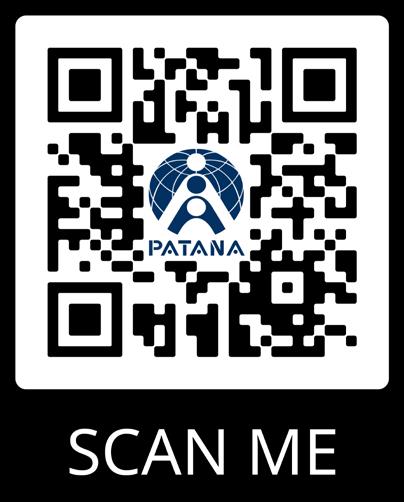
26 • Bangkok Patana School LEARNING GLOBAL CITIZENSHIP
GLOBAL
26 • Bangkok Patana School
CITIZENSHIP

TERM 2 – 2023 • 27 Bangkok Patana Magazine Bangkok Patana Magazine TERM 2 – 2023 • 27
GLOBAL CITIZENSHIP
HELENA MARTIN, GRAD’15
Hello! I’m Helena, a Bangkok Patana Alumni. I graduated in 2015 and am now a junior doctor based in London. Having just finished medical school, I thought it might be helpful to talk you through a typical day at medical school. This is for those interested in studying Medicine in the UK (or anywhere), or just curious about what medical students get up to. Here’s a typical day in the life of a first- or secondyear medical student (the pre-clinical years) at the University of Edinburgh.

My Usual Day at Edinburgh University
7:30am: usually wake up (in the dark), go on a run if I feel up for it.
8:40am: leave home to walk to medical school across a park called The Meadows (either beautiful or blowing a gale and horizontal rain)
9:00am: lecture in the old Anatomy Lecture Theatre (designed so that students could watch live operations!). Lecture on the pathogenesis of atherosclerosis (where plaque-like material forms in the blood vessels and blocks off blood supply to the heart muscles, leg muscles, etc.).
10:00-11.30am: Break – coffee and chat with some friends or head to the library to fit in some studying.
11:30am: Problem-Based Learning (PBL) – small group of eight discussing a case (more on this to come). We read a case vignette on a patient having recent progressive memory loss, in the General Practice clinic with their daughter. We discuss ‘everything and anything’ about this. The concept is that you learn from the ‘rabbit holes’ you go down as a group. We form five questions at the end of this session, then go to conduct some individual research on these questions. Later in the week, we have a second PBL session to discuss our findings. There are always snacks!
1:00pm: Lunch time.
2:00-5:00pm: Anatomy practical in the anatomy rooms. We had a pre-anatomy practical lecture yesterday to learn specifically about the cardiovascular system anatomy (the heart muscle, major arteries and veins in the body). During this practical, we circulate around seven stations with a workbook. Each station has a prepared specimen (or Xray/ histology slide). We observe the
specimens and answer the questions in the anatomy workbook. We then check our answers before we leave.
5:00pm: Home for a quick dinner.
7:00pm: Football training for the game against Glasgow Uni tomorrow.
10:00pm: Home and relax.
At the University of Edinburgh, we follow a spiral curriculum – this essentially means we cover basic science including things like the structure and function of the human body. In later years, known as the clinical years, you learn about these topics again, but applied to the different specialities in a hospital environment.
Some days can be quite full on, but that’s usually due to balancing the triad of academics, social life and extracurriculars. The example provided demonstrates a busy day – I can remember many early starts and late finishes. Interestingly, I found that the more extra-curriculars I participated in, the more time I had. Something about having these extra-curriculars automatically gives your day structure and blocks your time for you.
Some Advice:
You’ll never get through every resource! There are about 10,000 textbooks on each niche of Medicine. Some weeks, I would open a new textbook each day of the week and only read until page 10, then lose focus and start another textbook the next day. But I don’t recommend this! Stick to one trusted resource and speak to students from the year above you to know the most tactical way to go about studying something.
Keep up-to-date with your notes as much as possible, although medical students tend to cram and leave things until the last minute. A week before our exams, the library would be filled with medical students! If you’re ever struggling, reach out and get help early, even if you may not see how anyone can help. I have had difficult times myself, but speaking out and realising I was not alone was the key in moving forward, irrespective of the solutions offered. Feel free to reach out to me directly, I’m always available to chat about the academic workload!
28 • Bangkok Patana School LEARNING
ALUMNI STORIES LIFE AFTER PATANA 28 • Bangkok Patana School

TERM 2 – 2023 • 29 Bangkok Patana Magazine Bangkok Patana Magazine TERM 2 – 2023 • 29
Where We’re From
By the Year 6 Enrichment Class

We’re from rocking chairs, From baseballs and hockey sticks. We’re from tiles that slip and slide, From twisting neighbourhoods with luscious playgrounds, From the freedom of running through fields and rolling down grassy hills.
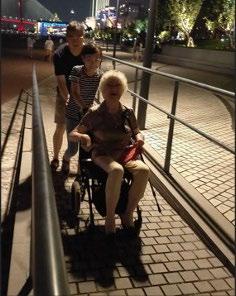

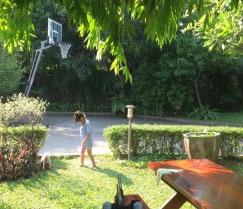
We’re from the beaches with sand and stones, From the horses roaming the marshy, parched fields.

We’re from vines that have started to bear fruit, From eternal summers and cool breezes, Whose refreshingness we’ll never forget. We’re from fish swimming gracefully in the water, From making a remedy that helps with a sore throat.
From getting a special prize from the King, We’re from sunny afternoons and rainy nights, From rainbows and picking strawberries. We’re from fashion shows and modeling agencies, From endless piles of clothing delivered to our homes.
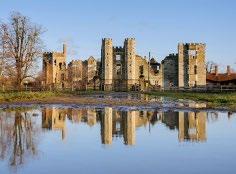

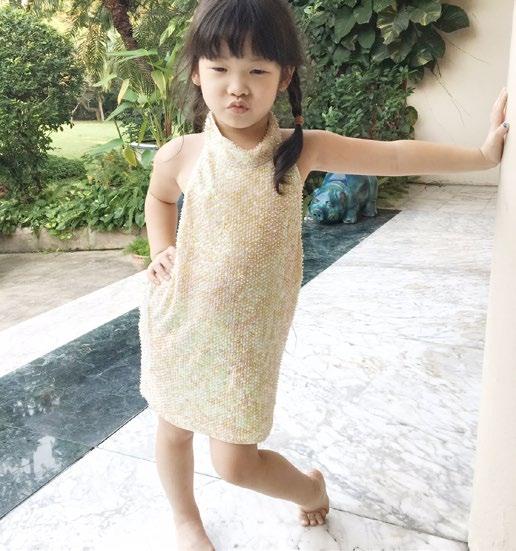

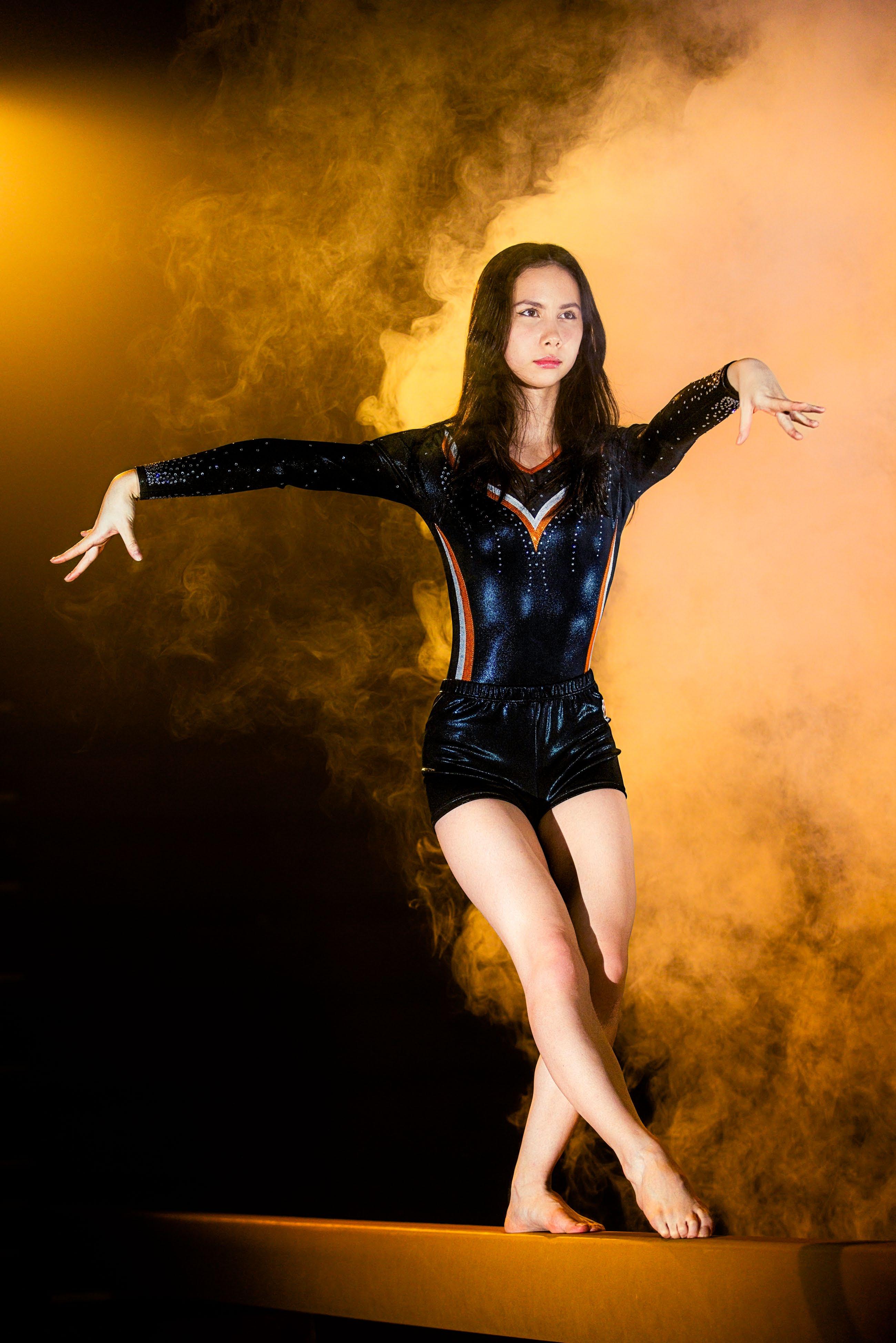
We’re from bright kaleidoscopes and magnifying glasses, We’re from our mums’ closets, our favourite hiding place.

We’re from the sweet Osmanthus Fragrans, Whose little heads bob up and down. We’re from novels and dictionaries,
These are the moments we are from, We are from these moments.

30 • Bangkok Patana School LEARNING GLOBAL CITIZENSHIP YEAR 12 RESIDENTIAL VISITS LEARNING 30 • Bangkok Patana School
From her thirteen-year career as a Bangkok Patana gymnast, Evelyn Cannon has established fulfilling relationships with her peers, developed a resilient mindset and grown as an athlete. These will all contribute to her holistic well-being as she pursues a degree in biomedical science. Read about Evelyn’s journey of growth:
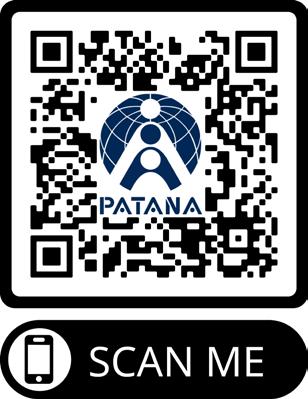

Bangkok Patana is a not-for-profit, IB World School accredited by CIS admissions@patana.ac.th www.patana.ac.th Tel: +66 (0) 2785 2200
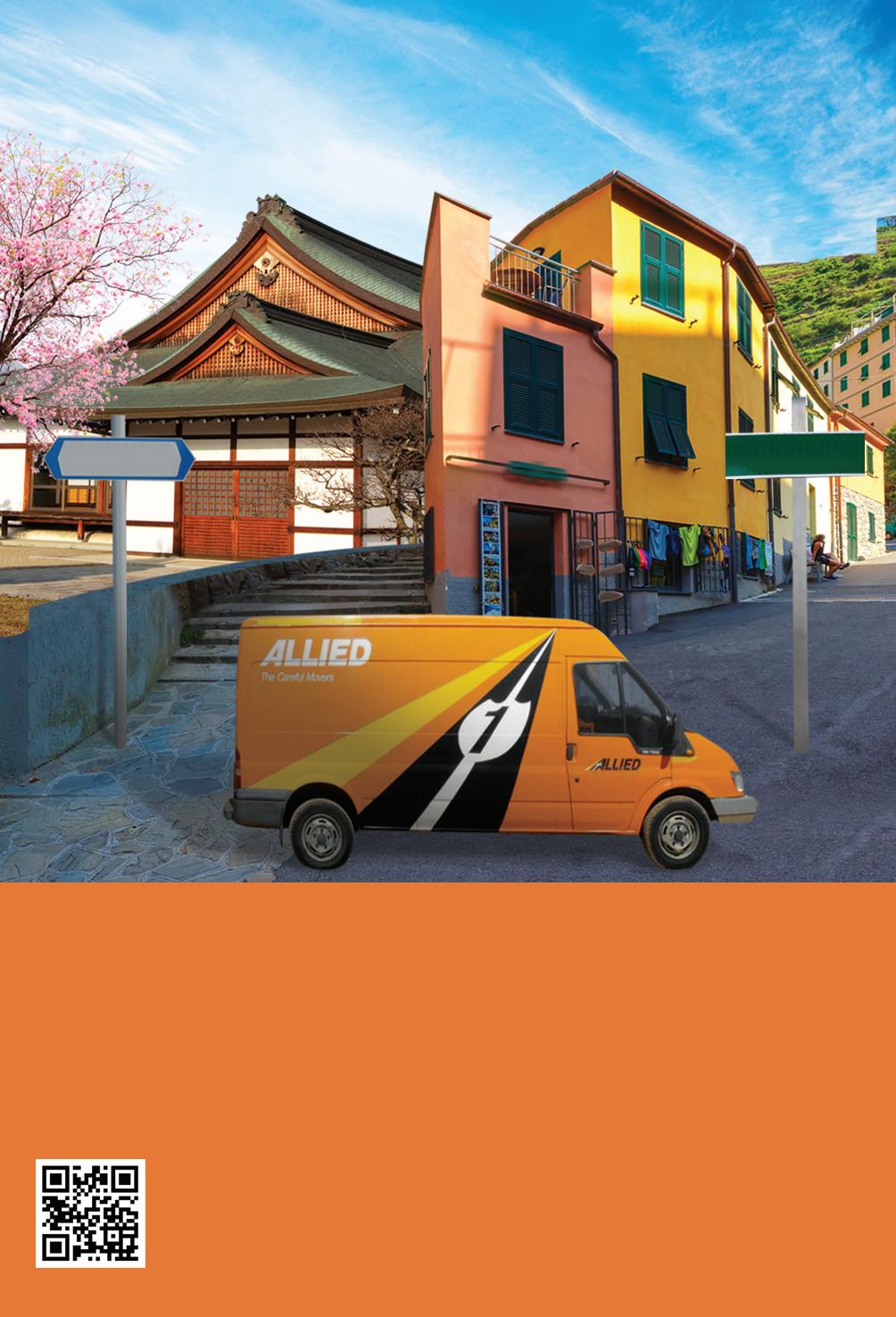














































































 By Shane Owen, Head of Year 9
By Shane Owen, Head of Year 9






 By Claire Dale, Head of Year 10
By Claire Dale, Head of Year 10












































